KNEEL WITH THE POPE IN PRAYER AUGUST
General: That the European Union may draw new impulse from the Christian heritage which has always been an essential part of its culture and history.
Missionary: For ever greater unity and cooperation among Institutes working in the missions.
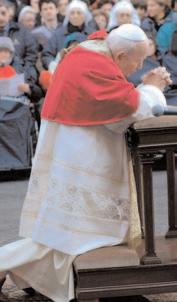


WA’s only Catholic weekly newspaper
Perth: 5 August 2004 Price: $1

HONDA NORTH HONDA NORTH
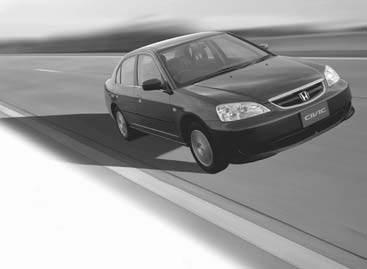
Men and women, the way ahead together
Men and women created equal in the image and likeness of God is the unchangeable basis of all Christian understanding of people and society, according to the Congregation for the Doctrine of the Faith.
This equality and difference were the heart of the Congregation’s letter to the Bishops of the Catholic Church “On the collaboration of men and women in the Church and in the world”, which was released in Rome last Saturday, July 31.
The letter was published for the Congregation by its Prefect Cardinal Ratzinger and Secretary Bishop Angelo Amato SDB with the approval of Pope John Paul II. The letter drew deeply on the meaning of the Genesis accounts of creation to show that from the beginning humanity is described as being in a male-female relationship.
“This is the humanity, sexually differentiated, which is explicitly declared ‘the image of God’,” the letter said.
The accounts of the separate creation of man and woman emphasised that in the loneliness of Adam only the woman, “created from the same ‘flesh’ and cloaked in the same mystery can give a future to the life of man”. God’s creation of woman characterised humanity as a “relational reality”. The living out of the rela-
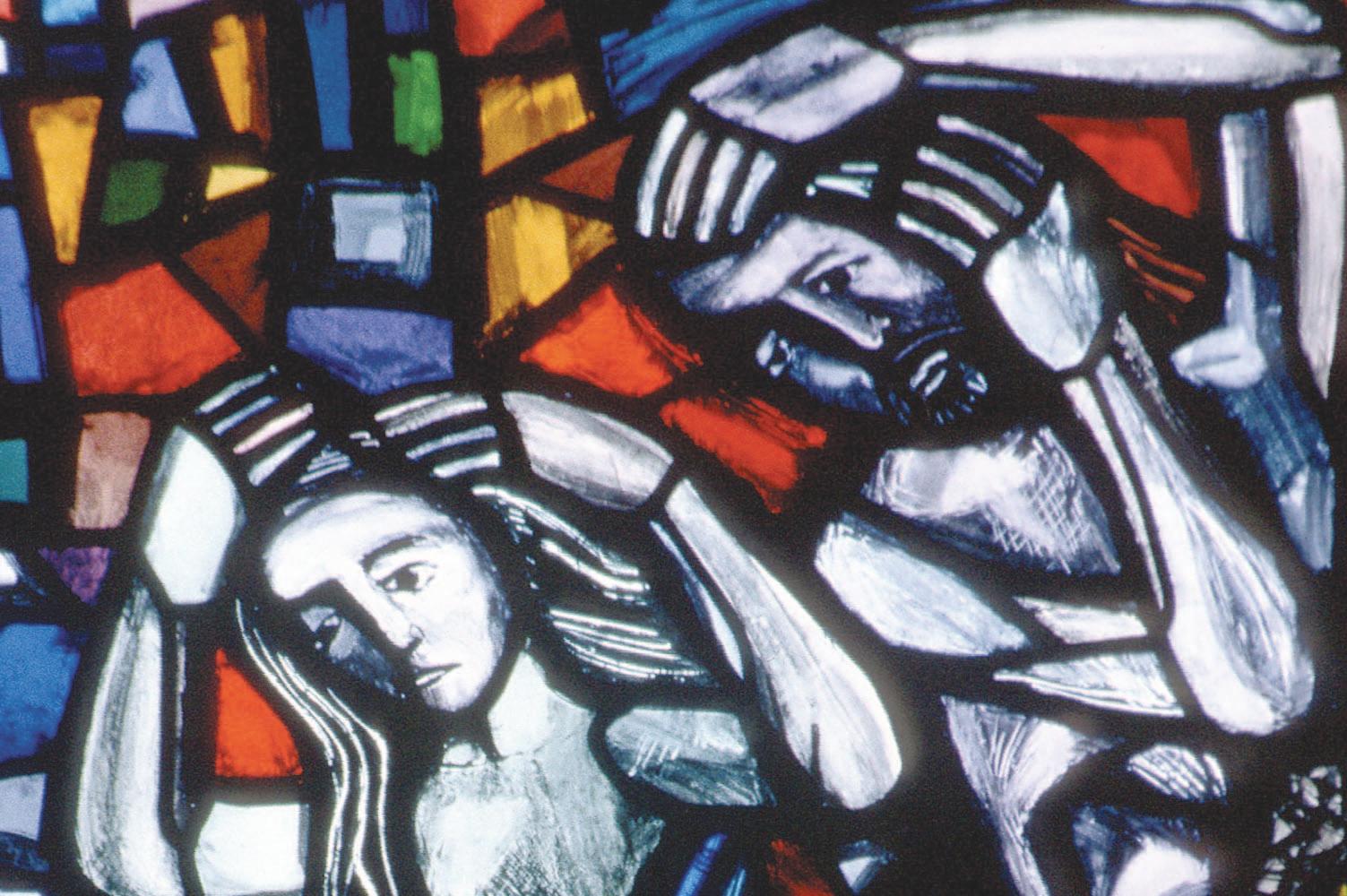
tionship in which two become ‘one flesh’ emphasised that from the beginning man and woman were called not only to exist side by side but also to exist mutually ‘one for the other’.
Both in individual relationships and in humanity itself there was to be an integration of what is masculine and what is feminine.
Holohan issues Pastoral
Bishop Gerard Holohan of Bunbury issued a pastoral letter in mid-July reaffirming the importance of the Eucharist in the life and worship of the Church and setting out changes which will be introduced for congregations in his Diocese. He said some other changes would also affect clergy and schools but that his pastoral letter focused only on those affecting congregations. The pastoral is reproduced as a special 4-page liftout in this week’s centre pages of The Record
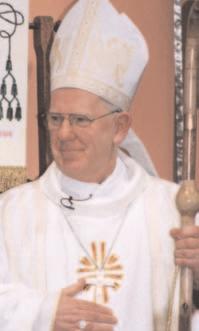
tuted the Eucharist, he wrote.
The peace and love of the original relationship was distorted by original sin. When the man and the woman denied the difference between God and mankind by disobeying him, the way they lived their sexual difference was also upset.
This gave rise to a relationship that frequently killed love and
replaced it with self-seeking and domination of one sex over another, leading to individual and social injustices.
Modern attempts to redress these problems had given rise to new problems. One was to emphasise strongly conditions of subordination in order to give rise to antagonism: women, in
order to be themselves, must make themselves the adversaries of men. Faced with the abuse of power, the answer for women is to seek power. This led to harmful confusion regarding the human person, which had its most immediate and lethal affects in the structure of the family.
A second tendency was to deny or minimise the essential differences between male and female, and although intended to promote equality for women had in reality called into question the family, in its natural two-parent structure of mother and father, and made homosexuality and heterosexuality virtually equivalent.
“In the face of these currents of thought, the Church, enlightened by faith in Jesus Christ, speaks instead of active collaboration between the sexes precisely in recognition of the difference between man and woman.
In seeking healing of past and present divisions, the letter reminds the world that sexuality characterises man and woman at the physical, psychological and spiritual levels. It is a fundamental component of personality and of the ways of expressing life and love. Throughout the Old Testament, God repeatedly descrC o n t i n u e d - P a
While change could sometimes be difficult to accept it was important to focus on the reasons for the change, he pointed out. Changes which had, at least partially, crept in had obscured Christ’s intention when He insti-
In the letter Bishop Holohan invites deeper reflection by posing questions to parishioners about how they prepare for and participate in the celebration of the Eucharist. He pointed out that his pastoral letter follows on from Ecclesia de Eucharistica, Pope John Paul II’s encyclical of 2003 on the Eucharist in the life of the Church, and from the document issued earlier this year by the Vatican, The Sacrament of the Redemption. This second document spelled out some practices or abuses that had crept into celebration of the Eucharist in recent decades and which need to be changed to ensure the proper celebration of the Sacrament. L i f t o u t - P a g e s 7 - 1 0
Caritas calls donations for Bangladesh
Caritas Australia has launched an appeal to fund relief efforts following floods in Bangladesh. 20 million people have been affected; 40 per cent of the country is submerged in floodwater; diarrhoea and other water-borne diseases are rife in flood-affected areas.
Australians wishing to help this relief effort can phone Caritas on 1800 024 413 or go to the aid agency’s website at www.caritas.org.au to make an online donation.
● Cardinal Oscar Rodriguez SDB, the first cardinal in history from Honduras, will be speaking for Caritas on Wednesday 1st September at 8pm at Notre Dame Australia in Fremantle. S e e a l s o - P a g e 1 3
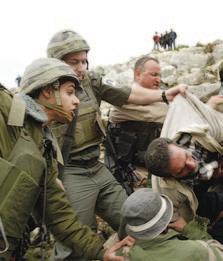
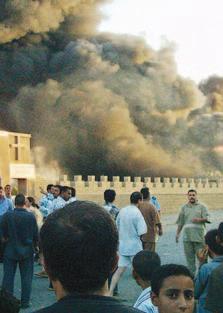
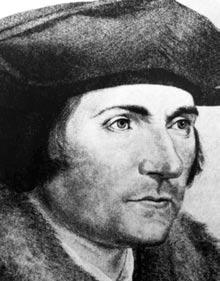
Why the next century might be worse than the last. PAUL GRAY’S NEW BOOKon Islam’s rise P a g e 1 4
N e w t a c t i c , n e w t a r g e t Shi’ite mosques, troops, officials: now it’s Christian worshippers being bombed P a g e 1 2
What ST THOMAS MORE offers politicians in an election year P a g e 1 6
T h e o l o g y o f B o d y s p r e
d s
P
Brian Gardner’s HONDA 432 Scarborough Beach Road Osborne Park 6017 Phone: 944 99 000 DL0891 For the best deal on a new Honda, accessories, parts, finance or from our range of quality used vehicles. new@hondanorth.com.au www.hondanorth.com.au
g e 2
a
-
a g e 3
N e w B o o k
h e r e p r e s e n t a t i v e ’ s f r i e n d
T
Adam and Eve are shown fleeing the Garden of Eden in this detail from a stained glass window. The Vatican’s document on relations between the sexes has received unexpectedly favourable response from many commentators.
Photo:CNS
DISTRIBUTION
The Record, established in 1874, is distributed to Catholic Churches, presbyteries, religious houses and subscribers throughout the Archdiocese of Per th, Geraldton, Bunbury, Broome and overseas.
THE TEAM
Managing Editor
Peter Rosengren
Production/ Advertising
Carole McMillen
Office Manager
Kylie Waddell
Bronwen Clune
Debbie Warrier
Jamie O’Brien CONTRIBUTORS
Hugh Ryan, Paul Gray, Fr Tim Deeter, Tony Evans, George Russo, Peter Dwan,
Men and women, the way ahead
C o n t i n u e d f r o m P a g e 1 -ibed his love for Israel in terms of the love of the bridegroom for the bride. Jesus confirmed the covenant between man and woman as willed by God in the beginning, and proclaimed the ‘good news’ that the power of the resurrection makes possible the victory of faithfulness over weakness.
In Christ the rivalry, enmity and violence which disfigured the relationship between men and women can be overcome and have been overcome.
In addressing the importance of feminine values in the life of society, the letter pointed out that women preserve the deep intuition of the goodness in their lives of those actions which elicit life, and contribute to the growth and protection of the other.
“This intuition is linked to women’s physical capacity to give life. Whether lived out or remaining potential, this capacity is a reality that structures the female personality in a profound way.
“It is women who, even in very desperate situations, as attested by history past and present, possess a singular capacity to persevere in adversity, to keep life going even in extreme sit-

uations, to hold tenaciously to the future, and finally to remember the value of every human life.”
(To see this principle working out in practice, read the story of Kaoltoum and other Sudanese mothers on Page 16 of last week’s discovery - Ed)
“Although motherhood is a key element to women’s identity, this does not mean that women should be considered from the sole perspective of physical procreation,” the letter said, warning that this attitude could lead to ‘serious distortions’ and ‘dangerous disrespect for women’.
“The existence of the Christian vocation of virginity, radical with regard to the Old Testament tradition and the demands made by many societies, is of the greatest importance in this regard. Virginity refutes any attempt to enclose women in mere biological destiny.
“Just as virginity receives from physical motherhood the insight that there is no Christian vocation except in the concrete gift of oneself to the other, so physical motherhood receives from virginity an insight into its fundamentally spiritual dimension: it is not in being content only to give physical life that the other truly comes into existence.

In this perspective, one understands the irreplaceable role of women in all aspects of family and social life involving human relationships and caring for others.”
When these qualities are not present “society as a whole suffers violence and becomes the progenitor of more violence”.
“It also means that women should be present in the world of work and in the organisation of society, and that women should have access to positions of responsibility which allow them to inspire the policies of nations and to promote innovative solutions to economic and social problems.”
These feminine values are in fact the deepest human values because every person, man or woman, is destined to be “for the other”. Femininity designates the fundamental human capacity to live for the other and because of the other.
“Therefore the promotion of women within society must be understood and desired as a humanisation accomplished through those values, rediscovered thanks to women. Every outlook which presents itself as a conflict between the sexes is only an illusion and a danger.” Feminine values are also at the
heart of the life of the Church, which herself is designated as the bride of Christ.
Faith is not so much a going out in search of God, but a recognition that God comes to us, he visits us and speaks to us.
The Church, with Mary, says to the Father “Let it be done to me according to your word” and with Mary learns its relationship with Jesus “Do whatever he tells you”.
From Mary the Church learns to recognise the infinite humility of God, that the way of Jesus is not domination or power as the world knows it, but the way of love, the royal power that vanquishes all violence.
Mary’s dispositions of listening, welcoming, humility, faithfulness, praise and waiting are the vocation of every baptised Christian.
Women live these traits with particular intensity and naturalness, and thus play a role of maximum importance in the Church’s life, showing the true face of the Church, spouse of Christ and mother of believers.
Editor: The document can be found on the Vatican’s Web site at: http://www.vatican.va/roman_curia/ congregations/cfaith/documents/rc_ con_cfaith_doc_20040731_collaboration_en.html.
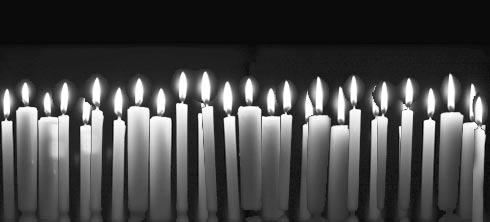
Editorial:Tuesday

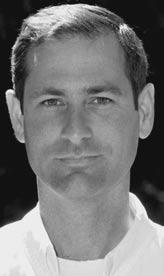

Caring for you for almost 40 years No. 4016
JOURNALISTS
to The Record (46 issues) and Discovery
issues) $55 per
subscription
Norma Woodcock, Guy Crouchback SUBSCRIPTIONS Subscribe
(6
year.Send
with cheque or money order. ADVERTISING
first
midday
midday CONTACT US 587 Newcastle Street, West Perth, WA 6005 POBox 75, Leederville, WA 6902 Tel.9227 7080 Fax 9227 7087 or find us on the web www.therecord.com.au Editor cathrec@iinet.net.au Classifieds/ Advertising advertising@ therecord.com.au Accounts administration@ therecord.com.au Why not stay at STORMANSTON HOUSE 27 McLaren Street,North Sydney Restful & secure accommodation operated by the Sisters of Mercy, North Sydney. • Situated in the heart of North Sydney and short distance to the city • Rooms available with ensuite facility • Continental breakfast, tea/coffee making facilities & television • Separate lounge/dining room, kitchen & laundry • Private off-street parking Contact:Phone:0418 650 661 or email:nsstorm@tpg.com.au VISITING SYDNEY MANNING & ASSOCIATES OPTOMETRISTS Contact Lens Consultants Mark Kalnenas (B. optom) Grove Plaza, Cottesloe 9384 6720 220 Nicholson Rd Subiaco WA 6008 www.babesdesign.com Babes design are specialists in Christening,first Communion and Confirmation outfits and accessories. Our outfits are designed and made by West Australian designers,ready to wear or made to order. If you are not able to visit our shop our consultants will visit you at no extra cost. For all enquiries phone our freecall number 1800 140 013 Psychological Counselling and Spiritual Direction Patrick Jones - B. Theol., B.Psych. 10 years experience 1/2 hour complimentary assessment Bookings 9316 9111 200 St.George’s Terrace,Perth WA 6000 Email:admin@flightworld.com.au ® Travel Services Lic No.9TA796 Italian Holiday FOR ALL THINGS ROMAN * Meet & Greet * Boutique Hotels * B&B * Country or City Villas * Monastery/Convent Accommodation * Theatre/Language Assistance * Restaurants * Private Car Touring Contact Michael or Sabina (08) 9322 2914 Italian Holiday YOUR A LIFE OF PRAYER ...are you called to the Benedictine life of divine praise and eucharistic prayer for the Church? Contact the: Rev Mother Cyril,OSB,Tyburn Priory,325 Garfield Road,Riverstone,NSW 2765 www.tyburnconvent.org.uk TYBURN NUNS ■ Made to measure vestments ■ Albs ■ Chasubles ■ Stoles ■ Sanctuary linen Phone: (08) 9378 4752 Email: ejryall@iprimus.com.au John and Eileen Ryall ` t e t h e l o g i c a l c h o i c e ● Manufacturing organs for over 65 years ● More than 80,000 installations worldwide ● Digital since 1971 ● 30 different models currently in production 14 AMERYST, COMO. Please call Ron Raymond on 9450 3322 for further information. www.allenorganswa.com An informed Catholic r eads The Record DOES ANYONE IN YOUR AREA NEED A HOME FITTING? Home Fittings? Do you find it difficult to come to the city? A FOUR SEASONS corsetiere will visit private homes, hospitals and nursing homes in the metropolitan area. Large selection of Front Fastening Bras to suit all figure types. General bra fittings, surgical fittings, post mastectomy and swimwear available all year round. A small fitting fee is charged. Please contact Elisabeth on 9322 2907 9.30am-3pm Monday - Thursday for appointments. Upper Hay Street Level, Carillon City (formerly City Arcade), Perth WA 6000 Ph:9322 2907 Fax:9321 5354
mail Advertising: Booking:Monday
Copy:Tuesday
The Record 2 5 august 2004
NDA Sydney campus wins federal cash
Government backs new Sydney campus with 200 HECS places
The University of Notre Dame Australia’s Vice-Chancellor Dr Peter Tannock has welcomed Federal Government support for its proposed Sydney campus.
Prime Minister John Howard last week approved and supported Notre Dame’s proposed Sydney campus which would be established on two sites - the historic St Benedict’s church and school in Broadway, Chippendale and the Sacred Heart parish site in Oxford Street, Darlinghurst, opposite St Vincent’s Hospital.
Dr Tannock said the Archdiocese of Sydney was making these sites available to support this important new development in Catholic higher education in Australia.
“The project will see the introduction by Notre Dame in 2006 of courses in law, business, teaching, and nursing,” he said.
“In 2007 it will seek to establish a Medical School based on the Darlinghurst site, which will service the long-term needs of Catholic hospitals and health care services in south eastern Australia, including Sydney, Brisbane, Melbourne, and the regional Catholic hospital and health care system in New South Wales and Victoria.
“This new Medical School, which will require formal Australian Medical Council assessment and accreditation before it can commence, will have an initial intake of 80 students.
“It will be an important contributor to the long-term viability and mission-focus of the Catholic health care system in eastern Australia.
“Like Notre Dame in Fremantle, this new Sydney-based Medical School will aim to develop graduates for areas of general community need.
“It will train people for work in Catholic, private and public hospitals, and especially for general practice in outer suburban and
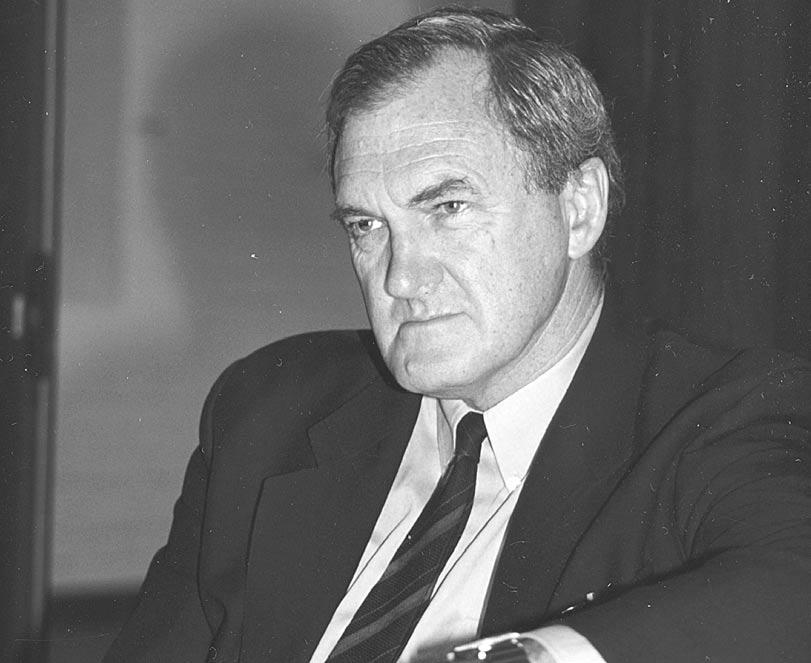
country areas.” Dr Tannock welcomed the Federal Government’s announcement that it would support the new university development with an allocation of 60 Commonwealth supported commencing HECS places in medicine, 60 commencing HECS places in nursing, and 80 commencing HECS places in teaching.
“The Federal Government’s capital grant of $4m towards the cost of developing the two campus sites in Chippendale and Darlinghurst will be particularly helpful in meeting the substantial capital costs involved.”
“The Archdiocese of Sydney will be contributing more than $20m to the project in the form of the value of existing land and buildings, and $5m in direct cash support.”
Dr Tannock said Notre Dame was already well advanced in its
It’s beginning to spread
It’s time to reclaim the Christian sexual ethic with a counter-revolution,say speakers
By Priscilla Greear
ATLANTA (CNS) — A seasoned bishop and a youthful theologian proclaimed the good news about the Catholic path to authentic sexual liberation at a July conference in Atlanta on “Sexuality, Marriage and the Family in the Third Millennium.”
Bishop Victor Galeone of Florida, and theologian Christopher West, author and lecturer at St John Vianney Theological Seminary in Denver, challenged Catholics to lead a sexual counterrevolution by embracing Pope John Paul II’s “theology of the body.”
Both speakers said many Catholics are no longer distinguishable from the rest of society when it comes to sexual ethics.
“The problem of our culture is not that it overvalues sex,” West said at the July 23-24 conference. “The problem of our culture it that it has no clue how valuable sex is. ... The foundation of human life, the deepest foundation of ethics and culture, stands or falls on how society lives sexually.
“There will be no renewal of the family without a return to God’s plan for the union of the sexes,” he added. “That won’t
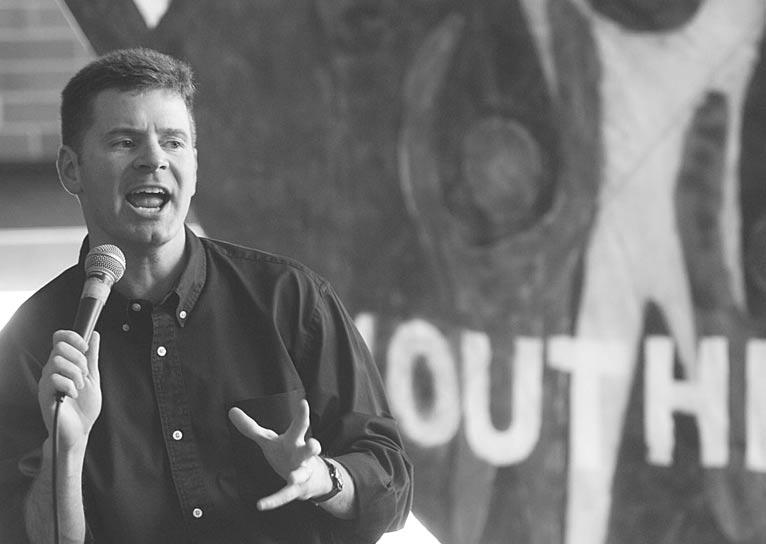
happen unless we can go into the world proclaiming (the Gospel) boldly.... If we are to build a culture of life in the 21st century, the most difficult task is to reclaim the full truth of the Christian sexual ethic.”
The Pope’s theology of the body, which was outlined in 129 general audience talks early in his pontificate, integrates the human body with the soul and spirit of the person.
Bishop Galeone and West were opening speakers at the second annual national conference focusing on the Pope’s teaching.
The gathering was co-sponsored by the Atlanta Archdiocese, the Diocese of Charleston, and Catholic Family Honour, a nonprofit organisation in South Carolina
that focuses on chastity and family education programs.
The conference drew about 450 people, largely from Georgia, South Carolina and Florida, but also from Rome, the Philippines and South Africa.
Bishop Galeone declared that 20th-century activists accomplished their mission to rid the world of the Christian sexual ethic, but the task now is to reclaim that sexual ethic in its fullness, leaving behind an attitude of repression or denial of God’s gift of sexuality.
“Here in America we like to think of ourselves as a Christian nation,” he said, adding that when he was still a young priest that was true.
“But now I feel we are living in C o n t i n u e d p a g e 6
discussions with a wide range of individuals, groups and universities in the development of this exciting and potentially groundbreaking project.
“It’s anticipated that Notre Dame’s Sydney based campuses will grow to an undergraduate and postgraduate enrolment of up to 3000 students,” he said.
“Most of these will be fee-paying and will benefit from the very significant Fee Help Scheme recently introduced by the Commonwealth as part of its Higher Education reforms.”
Dr Tannock expressed his gratitude to Cardinal George Pell for his vision, enthusiasm and generosity towards this important development in the University’s history.
He said that Notre Dame was delighted to be able to support the work of the Church in Sydney and south-east Australia.
University opens doors to public
The University of Notre Dame Australia will open its doors to the public on Sunday 15 August, 2004.
About 1000 prospective students and community members are expected to attend the annual event at the university’s Fremantle campus.
There will be information sessions about courses such as law, social justice, business, nursing, counselling, physiotherapy, medicine, arts and social sciences, teaching, science and information technology. Most of the information sessions will be followed by displays and demonstrations in the relevant teaching areas.
Open Day is designed to be an enjoyable interactive day that will provide information about the courses and facilities Notre Dame has to offer,” said Notre Dame’s Marketing and Prospective Students Manager, Elizabeth Beal.
“Teaching staff and current students will be on hand to speak to prospective students and to answer any questions they may have.
“Another feature of the day will be the guided tours around the campus which will run every 30 minutes.”
The open day runs from 10am-4pm.

The Record 5 august 2004 3 Please contact us for further information: Prospective Students Centre • POBox 1225, Fremantle WA 6959 • Tel: (08) 9433 0533 Fax: (08) 9433 0544 • future@nd.edu.au www.nd.edu.au • CRICOSPROVIDERCODE:01032F Sunday 15 August 2004 10am - 4pm Follow the signs on Mouat Street, Fremantle Campus Tours run half hourly from 11am - 3pm Sessions below are interactive and most include open laboratories and tours immediately after. TIME 10:30am 11:30am 12:30pm TIME 1:00pm 1:30pm 2:30pm OPEN DAY www.nd.edu.au/OpenDay INFORMATION SESSIONS Law Nursing Environmental &Biomedical Science Health and Physical Education, Sport and Recreation Theology, Philosophy and Ethics Counselling Arts, Behavioural Science, Communications &Media, Social Science Teaching INFORMATION SESSIONS Law Postgraduate Studies Commerce Degrees - incorporating ALL major areas Information Technology Medicine Nursing Social Justice Studies Commerce degrees - incorporating ALL major areas Physiotherapy Teaching With no upfront fees, Notre Dame is more accessible than ever before. FEE-HELPis available to Australian Students from 2005. The Director of Catholic Education in Western Australia invites applications for the above position in the Primary Religious Education Team. All relevant information and documentation is to be found on the employment website www.ceo.wa.edu.au Enquiries regarding the position should be directed to Damian Doyle, Coordinator, Primary Religious Education
on
9272. All applications, on the official form, should reach The Director,
Education Office of WA, PO Box 198, Leederville 6903 no
13 August 2004.
RELIGIOUS EDUCATION AND FAITH FORMATION SECTION
Team
9212
Catholic
later than
CONSULTANT
University of Notre Dame Australia Vice Chancellor Dr Peter Tannock.
West speaks at the Bishops Dare to Dream conference in March.
What’s the score on limbo?

Question: Years ago, there used to be quite a bit of talk about limbo. Now we don’t hear about it anymore. Does the Church still teach the doctrine of limbo?
One might say that limbo is in limbo! There are many Catholics born after Vatican Council II who have never heard of limbo (unless it refers to the Caribbean dance under a bamboo pole), so let me define it first:
The word ‘limbo’ comes from the Latin limbus, which means ‘edge’ or ‘border’. In ordinary usage, to be ‘in limbo’ is to be in an indeterminate state between two others. This leads us to our Christian understanding of limbo. I wrote in an earlier column about the ‘Limbo of the Fathers’, the state of existence for all the just who died before Christ. This limbo is specifically mentioned in the scriptures (I Peter 3:19) and in the Apostles’ Creed, so it is a doc-
trine of the Faith. But there is another definition of ‘limbo’: the abode after death of any unbaptised souls. When Catholics refer to limbo, they are usually referring to the ‘limbo of infants’. Contrary to what many believe, the Church never officially taught this limbo as a doctrine. The fact is that one can be a good Catholic, and believe or not believe in limbo, since the Church has never issued a definitive teaching about its existence. For most Catholics today, it is not an issue. So how did it come about as a common belief?
The Council of Trent, summoned to deal with the fallout from the Protestant Reformation, addressed Luther’s teaching on justification through faith alone. It said, ‘Since the days when the Gospel was promulgated, passing into a state of justification cannot take place without the water of regeneration (Baptism) or the desire for it, as it is written: “Unless a man be born of water and the Holy Spirit, he cannot enter the kingdom of heaven.”
(John 3:5)
Thus the Church teaches that a person who seeks to be baptised, but dies before receiving the sacrament, is baptised ‘by desire’. This can occur in the case of catechumens, those taking instructions in the Faith.
There are also situations, usually in time of persecution, when a catechumen is martyred for the Faith. This person is baptised not only ‘by desire’ but ‘in blood’.
But what happens to an infant who dies before water baptism and who, because of age, cannot


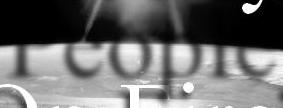


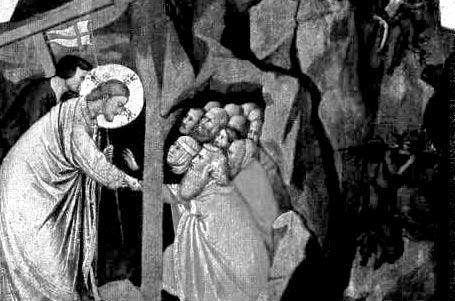
desire baptism? What happens to anyone who dies in the state of original sin? If the unbaptised infant or adult is ineligible for heaven (according to a strict interpretation of John 3:5), and if it would seem contrary to God’s mercy to consign that soul to hell, how do we resolve the problem?
One answer that theologians came up with is ‘limbo’. This answer was really a proclamation of God’s mercy, saying that unbaptised infants enjoyed a state of happiness and peace, but did not possess the Beatific Vision (seeing God face-to-face) since that is reserved for believers.
Considering the fact that the heretical Jansenists taught that all the unbaptised went to hell, limbo was actually a pretty good alternative!
Pope Pius VI condemned this extreme position of the Jansenists in 1794. This is the only statement on limbo in all major
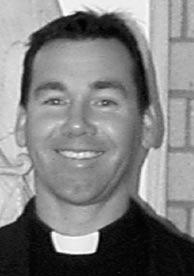
Church teachings in history. The Church today proclaims God’s mercy by offering another hope: that God provides some way for unbaptised souls, infant or adult, to make a decision for or against Him immediately after death. This is in keeping with the teaching that all the dead, of whatever age, possess intelligence and free will since these are faculties of the soul, and the soul lives on after death. (see Catechism nos. 1260-1261)
The Church provides that funeral rites may be celebrated for children whose parents intended them to be baptised but who died before baptism. In these celebrations the Christian community entrusts the child to God’s allembracing love and finds strength in Jesus’ affirmation that the kingdom of God belongs to little children. (Order of Christian Funerals, no. 238; see Matthew 19:14)
But a footnote to this text reminds us that the celebration of funeral rites for children who die before baptism is not intended to weaken the Church’s teaching on the necessity of baptism.
The Church is concerned about a new trend to postpone baptism until suitable arrangements can be made for relatives and friends to fly in for the event, or even to book a venue for a party. Haven’t they known for some months in advance that the child was on the way? Note that Canon 867 gives this admonition:
“Parents are obliged to take care that infants are baptised in the first few weeks. As soon as possible after the birth, or even before it, they are to go to the priest to request the sacrament for their child and to be prepared properly for it. An infant in danger of death is to be baptised without delay.”
No, baptism should not be seen as ‘insurance’ against limbo after death. But if we believe that baptism cleanses the soul of original sin and endows a person with God’s life-giving grace, why should there be a delay of many months? Why keep children in a sort of spiritual limbo here on earth, waiting for Baptism, when the Church is ready to welcome them immediately as God’s baptised daughters and sons? They have been created by God to live with Him for all eternity in heaven, so let’s help them get there!
Send your questions to:
Dear Padre, c/- The Record PO Box 75
LEEDERVILLE WA 6902
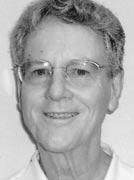
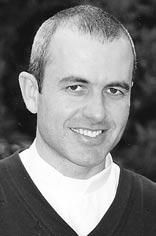

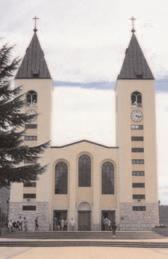
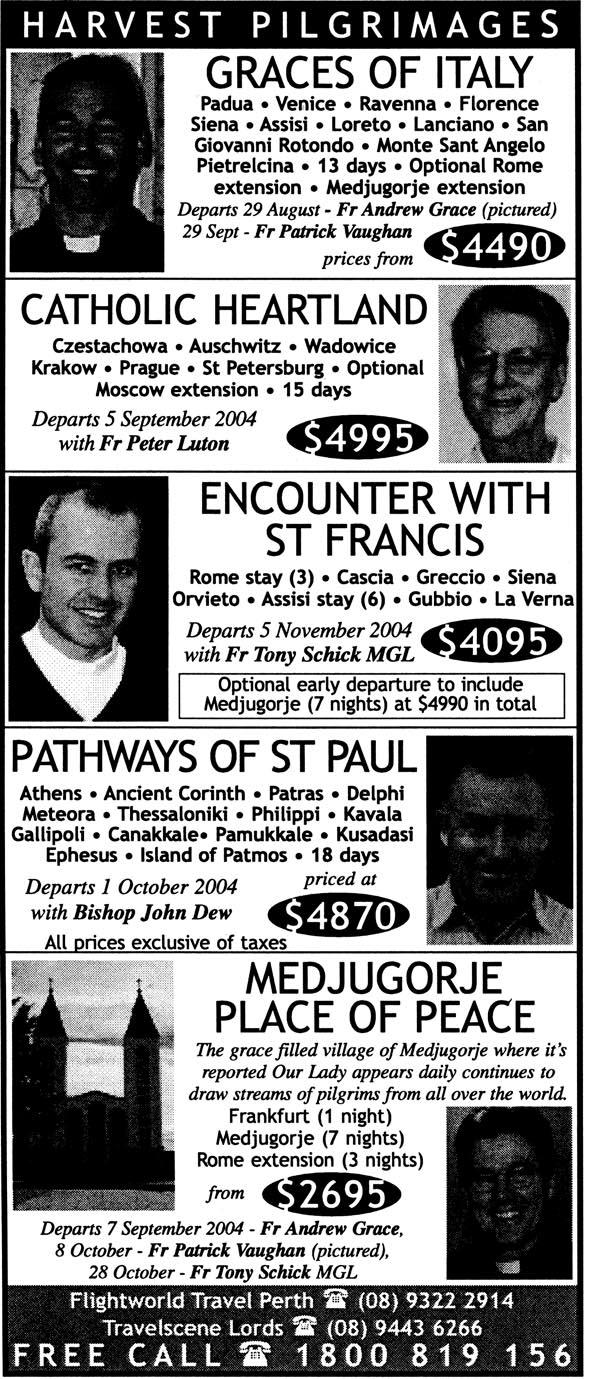
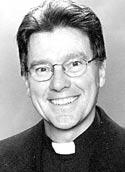
Pope prays for victims of shopping centre blaze in Paraguay
VATICAN CITY (CNS) - Pope John Paul II offered his prayers and condolences for the more than 300 people left dead after a fire in a shopping centre in Asuncion, Paraguay. A telegram sent on August 2 on the Pope's behalf by Cardinal Angelo Sodano, Vatican secretary of state, offered prayers for the deceased and injured. The Pope also prayed "that the Lord would give comfort and spiritual serenity to those mourning the loss of their loved ones." The telegram was sent to Archbishop Eustaquio Cuquejo Verga of Asuncion. According to news reports, the August 1 fire trapped hundreds of people in the multilevel Ycua Bolanos supermarket on the outskirts of Asuncion. Many survivors said that supermarket employees locked them in to prevent others from looting once the fire started. Supermarket officials denied this. Police said they are investigating the allegations. Besides the dead, about 300 people were injured, including about 70 with critical burns or breathing problems.
Lords
Your Harvest Pilgrimage Agent in the northern suburbs!

Call Melinda for all details on Visitations of Mary in October 2004 and other pilgrimages.
Doug Harman/Melinda DiBiase
Unit 5,9-11 Hutton St,Osborne Park
The Record 4 5 august 2004 Bring them home for Christmas Evangelisation Our Parish Mission 2004 “Set My On Fire” St, Thomas the Apostle Parish A Catholic Bible Seminar for the New Evangelisation conducted over 15 weekly sessions at the “The presentation of the Good News message is not an optional contribution for the Church. It is the duty incumbent on her by the command of our Lord Jesus, so that people can believe And be saved. It does not permit either indifference, syncretism or accommodation. (HH Pope Paul VI - Evangelii Nuntiandi) 7.30pm every Tuesday Evening from September 7th to December 12th. 2 College Road, Claremont. WEEKLY BIBLE SUBJECTS INCLUDE: Knowing the Love of God. Jesus is Lord. Healing through forgiveness. The Holy Spirit & His Gifts. Be filled with the Holy Spirit (Why Tongues?). The Blood Covenants. Divine healing belongs to you. Bible foundations of prayer. Break open the Word. Your Righteousness in Christ. The authority of the believer. Spiritual Warfare. Praying effective prayer. The Motivational Gifts. Discerning Charismatic Gifts. Faith+Works=Results. God’s angels in your world. Overcoming the kingdom of darkness. Your victory in Christ. In the world not of the world. Turn the world upside-down with faith in the name of Jesus. Intercessory Prayer. Practical soulwinning for practical people. The Great Commission. Branches bearing fruit. The Fruit of the Spirit. Three dimensions of man. The Four Loves: Agape, Eros, Storge, Philea. How to raise your vision in God and keep it. Flame Ministries International (08) 9382 3668 Enquiries and Colour Brochure: Email: fmi@flameministries.org Set My People on Fire is to be conducted as a Parish Evangelisation Mission that Will give you a Biblical knowledge for effective apologetics and evangelisation. People
DEARPADRE
The decent to limbo, imagined by an artist.
00512
Tel.08 9443 6266,Fax 08 9443 6255 Licence No 9TA
Melinda DiBiase
Youth power up for gathering
M i c h D ’ A v r a y t o s p e a k t o C a t h o l i c y o u t h c o n f e r e n c e
Up to 200 young people between the ages of 16 and 25 are expected to come together from October 6-10 in the monastic town of New Norcia to learn about various issues of life and to deepen their relationship with the source of all life and loveGod.
Perth Glory coach Mich D'Avray will be among the speakers addressing young people at what is expected to be one of the biggest youth conferences in WA this year.
AFL veteran and premiership player Stephen Lawrence, who played for Hawthorn for 12 years will also speak.
Other speakers will include two young Catholic men who will talk about their experiences with homosexuality and a young woman who has been able to turn her life away from the world of prostitution.
The conference is an initiative of Archbishop Barry Hickey and is being organised by the archdiocese’s Respect Life Office together with a team of young people from various groups and parishes in the diocese.
Bishop Donald Sproxton, recent-
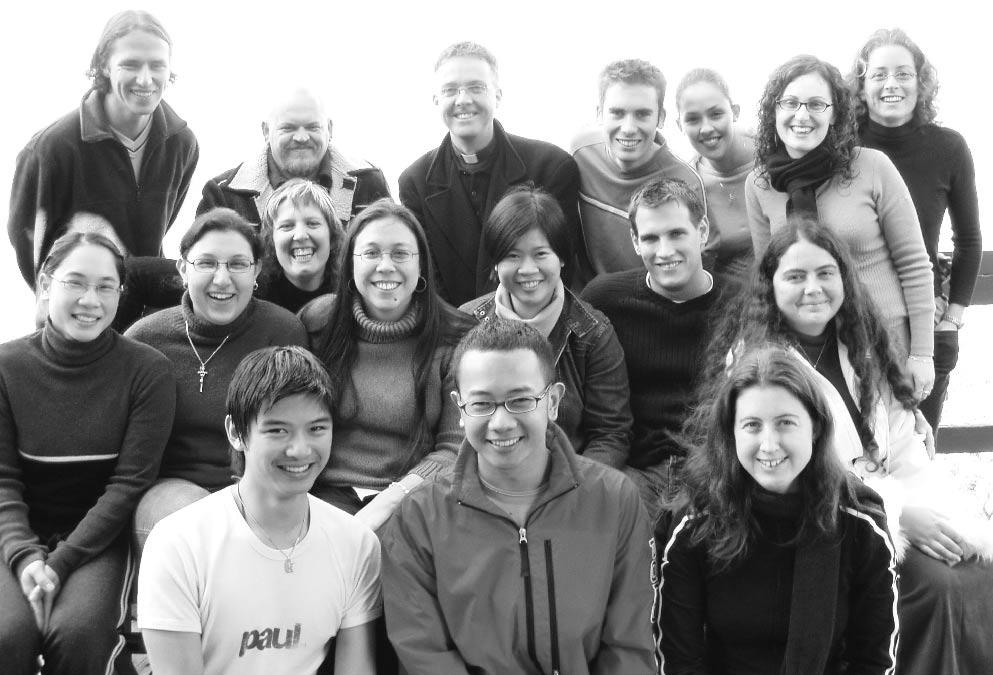
ly-professed Ursuline Sister Lynn Chua, and ethicist Fr Joe Parkinson will also attend and speak at the conference.
Apart from talks and workshops, there will be music, debates, dramas, sports and recreation, reception of the
Sacraments - and lots of fun. Archbishop Barry Hickey will welcome young people to New Norcia and encourage them to open their hearts to Gods love and grace over the five days.
Archbishop Hickey has already drafted a letter for distribution to
schools and parishes asking them to promote the conference. Respect Life Executive Officer
Clare Pike said “We have been amazed at how people are volunteering their time and gifts to help make the conference a success. From people offering to do art-
work in one of the sessions to others giving us money to sponsor young people who are not going to be able to afford the registration fee. This conference will only be successful with the support of the whole Church, and this has already begun!”
It is hoped that the conference will not just educate participants about issues such as sexuality and relationships but will also empower them to go out as ambassadors of life to build a culture of life in their own parishes, schools and workplaces, Clare said.
“We hope to inspire these young people to see that the only way to respond to issues such as abortion, euthanasia, homosexuality, and prostitution, is with love.”
A retreat for conference organisers was held at Eagles Nest in Gidgegannup recently as part of the ongoing program leading up to the October event.
Part of the preparation for October is to form a group of passionate young Catholics to be leaders and sources of inspiration to those who will attend.
Those interested in finding out more information about the conference can contact the Respect Life Office on (08) 9375 2029 or via email at respectlife@perthcatholic.org.au
Seminary gives two more deacons to archdiocese
By Jamie O’Brien
Vittorio Riccardi and Miguel Zavarese from the Redemptoris Mater Archdiocesan Missionary Seminary were ordained to the diaconate by Archbishop Barry Hickey at St Gerard’s Parish in Mirrabooka.
In his homily Archbishop Hickey focused on the meaning of the diaconate.
“We need to concentrate on what is specific to the order of the diaconate,” the Archbishop said.
“They [deacons] are called to serve,”
“And they can do this by accepting the many tasks that the apostles were involved in to preach the Gospel,” he said.
The Redemptoris Mater Seminary in Morley prepares priests for the New Evangelisation, according to the program of the Neocatechumenal Way, an itinerary of Catholic for-
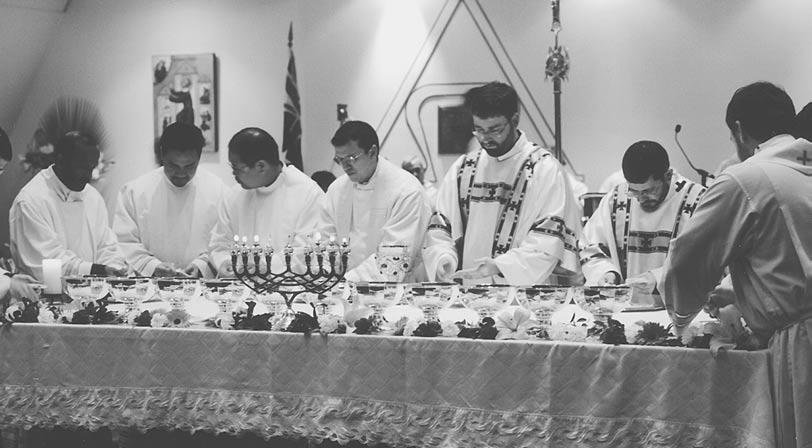
mation formally recognised by Pope John Paul II.
Close to 600 people gathered for the event, which was celebrated with the Neocatechumenal Communities of Perth, priests of Perth and visitors from around Australia. Father Michael Moore SM, the Rector of Redemptoris
Mater Seminary, said Christ promised apostles, missionaries and priests who would serve the community of the Church and announce the Good News.
“These two men are part of that overall plan that Christ proclaimed in the Gospel,” he said.
Vittorio Riccardi, 37, from Italy,
said he felt the call to the priesthood at a meeting with the initiator of the Neocatechumenal Way, Kiko Aguello, in Italy. He entered the Redemptoris Mater Seminary in Perth in 1997, having previously worked in Italy as a surveyor, and said his pastoral experiences in Sydney, Brisbane and Darwin had helped him during his eight years of formation.
Miguel Zavarese, 30, from Brazil, was studying electrical engineering before entering the seminary. After leaving the Church at 15, Rev. Zavarese came back to the Church in 1993 after listening to a series of talks given by the Neocatechumenal Way. Entering the seminary in Brazil in 1995, Deacon Zavarese came to Australia in 1995; from 2001 to 2003 he served in Mexico as part of his pastoral experience. He said he believes his mission
is very connected to the word of God... “Not only to proclaim but to preach the Gospel.”
During the ceremony Fr Moore said that in today’s society a pressing secularisation forces people to live as if God doesn’t exist.
“But the Church has Good News and unless someone physically goes [to do this] the people don’t receive this good news,” he said.
“These two men will be able to make a contribution to the mission of what the Perth Archdiocese is doing,” Fr Moore said. “A mission, which is to bring Jesus Christ through the sacraments to the people,”
“And to bring Good News to the people far away from the Church,” he added.
Six seminarians from St Charles Seminary are also due to be ordained to the diaconate later this year.
A pleasure to serve along with others as Ambassador for Blood
It was an unexpected pleasure to be named an Ambassador for Blood Donor Awareness Month at a very friendly ceremony at Kings Park last Sunday.
I was one of twelve public figures that regularly donate blood. They included the Governor, Lt General John Sanderson, the Hon Jim McGinty, Professor Fiona Wood, Justin Langer and others who might be in a position to promote blood donations.
I have accepted to do what I can during this month to encourage others to donate blood.
Do you know that only 3% of the population are regular donors and that 80% of people will need
a blood transfusion some time in their lives?
I have been giving blood since my early days as a priest. I can’t say I enjoy it as I’m not one for needles. However the procedure is very efficient and painless and the staff are friendly. They give you a cup of tea afterwards.
I could claim that I decided to give blood for the highest altruistic motives. The truth is that my motives were a little selfish. I thought that if one day I needed a transfusion, someone else would have to donate it. So I decided to start giving blood. Whatever the reason, it is still very worthwhile to give one’s blood for others.
I think that the Blood Donor Service of the Red Cross is one of the most valuable services they offer because it saves lives. Because my blood type is fairly rare (O-) it is in demand because I am told that nearly anyone can receive it.
One day not long ago I was called out of a Council of Priests’ meeting to donate blood for a child at Princess Margaret Hospital. How can one ever doubt the importance of giving blood after that?
I would like readers of The Record to think seriously about giving blood if they are not already a blood donor. August is
Blood Donor Awareness month, and a good time to give the matter some thought.
At the ceremony at King’s Park last Sunday a Bali victim, Peter Hughes, was there telling us about his own dependence on the generosity of blood donors. A young mother, Anne Betts, spoke of how she nearly lost her twin daughters born prematurely but for the many blood transfusions they needed.
I would be very pleased if many Record readers would telephone 13 14 95 to make an appointment at their nearest Blood Service to donate some of the life giving blood that God has given them.
Archbishop’s
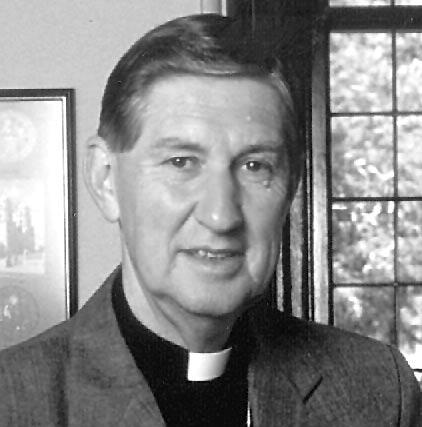
The Record 5 august 2004 5
Deacons Riccardi and Zavarese prepare the Eucharist for distribution during communion after being ordained by Archbishop Hickey.
Some of the team preparing for the Embrace the Grace conference for young people, to be held at New Norcia from 6 to 10 October and which is being organised by the Respect Life Office of the Archdiocese of Perth.
Perspective
It is not just the grief counsellors, priests and pastoral carers who should be preparing themselves for the screening of the documentary, My Foetus on ABC’s Compass program this Sunday. Every Australian should be bracing themselves for how this film will affect our nation.
Our feminist predecessors thought abortion would be ‘good’ for women; that it would liberate and empower us and so they fought to achieve legal access to it in WA in 1998. But for many the freedom of abortion has never been realised. Society has failed to recognise and take seriously the painful aftermath of abortion and so for vast numbers of men and women their grieving has been hampered by a socially imposed silence.
But lately it seems possible that this veil of silence is finally being lifted. Various women have been brave enough to come forward to speak of how their abortion has shattered their life.
OpinionReflection &
&
opinions from around Australia
Program offers clues to future I Say, I Say......
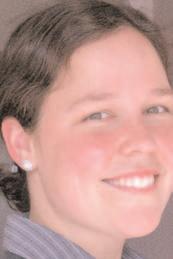
study. I stopped answering the phone. I stopped getting out of bed.” Whether the abortion industry acknowledges it or not, for so many women who have experienced abortion, when their unborn child died a part of them died too.
“I spent a friend’s birthday locked in the restaurant toilet. I cut myself off from everyone. I gave up my job and my further study. I stopped answering the phone. I stopped getting out of bed.”
with Clare Pike
those who are supposed to love and support them and by our society.
The much-needed provision of this practical care and support has seemed more likely in recent weeks as feminists have begun to question the dominant paradigm and challenge us to engage in an honest and frank discussion about abortion within a contemporary context. This has involved prominent Australian feminists suggesting that we need to look at reducing the legal limit for when abortions can be performed due to changes in medical technology and the viability of babies.
on. We must now be prepared to face up to the reality that abortion has not been good for women.
Unfortunately the film does not go far enough in doing this. It is largely disconnected from the woman’s experience because it fails to portray the emotional dimension of the whole process.
The documentary does not highlight the many psychological consequences of abortion that many women and men are faced with and in so far as it fails to do this it contributes to the veil of silence obscuring their pain. To this extent it could be accused of simply trying to normalise and de-stigmatise a traumatic event.
The stories of these courageous women are emerging in books such as Giving Sorrow Words by
Melinda
Tankard Reist;
in letters to the editor and in various newspaper articles around the Country. In one such article in The Age, Ginger, a woman with no pro-life or Christian background explains that:
“After the abortion I did not return to or continue the life I had before. Instead, I developed phobias. I became afraid of heights… I became very scared of social situations. I spent a friend’s birthday locked in the restaurant toilet. I cut myself off from everyone. I gave up my job and my further
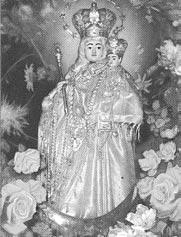
TWENTY FIRST ANNUAL NOVENA OF OUR LADY OF GOOD HEALTH VAILANKANNI
Monday 30 August (Day 1) 7pm
Holy Mass followed by Novena devotions, benediction, procession an hoisting of banner. Conclude with a social get-together to welcome Fr AnthonyVan Dyke. Please bring a plate of finger food.
Tuesday 31 August (Day 2) 7pm
Novena devotions, homily and benediction of the Most Blessed Sacrament.
Wednesday 1 September (Day 3) 7pm
Novena devotions, homily, blessing of children and benediction of the Most Blessed Sacrament.
Thursday 2 September (Day 4) 7pm
These women are not alone. They are not crazy, they are just deeply wounded and need to be loved and nurtured through the healing process. It remains to be seen whether this documentary will provoke society to care for these suffering women.
I also question whether the screening of My Foetus will address the lack of choice that so many pregnant women find themselves confronted with.
Countless women are pushed through the door of the abortion clinic as a result of physical and emotional abandonment by
No doubt this documentary will assist recent advances in medical technology in the areas of foetal photography, ultrasounds and genetics, to reveal the humanity of the unborn from conception. But the right to abortion can not depend on the appearance or viability of the child, as this is forever changing with advances in medical science. I am not downplaying the significance of the loss of the unborn child’s life in abortion. But, it is not enough when debating abortion to simply look at the impact on the child. We must now be brave enough to challenge the foundation that the right to abortion was predicated
Whilst it is good that the film is exposing part of the reality of abortion and is provoking discussion on the topic, the public need to be told about groups such as the Abortion Grief Counselling Association and the Respect Life Office. Women need to be assured that they are not alone and there are groups such as Silent No More in the US that are turning things around (www.silentnomoreawareness.org). May this film inspire all of us to join this movement to reach out to women and men suffering, to offer healing and to assure them that there is always hope.
The general public are invited to attend a free information seminar run by the Abortion Grief Counselling Association and the Respect Life Office on Monday 16 August at 7pm Mercy Conference Centre at Mercy Hospital. Come and listen to one woman’s testimony and hear about the effects of abortion.
Bishop challenges on theology of body
a post-Christian era. For starters, I’d like to ask, ‘How do we differ from our nonChristian neighbours?’ They watch pornography, and so do we. They cohabit before marriage and so do we. They get sterilised and so do we,” he said.
Christ “wants us to be thermostats, regulating the moral temperature of our culture,” the bishop added. “Instead, most of us are only thermometers, registering the values of a decadent society.”
demic of abortions, divorces and brazen homosexuality,” he said. “After all, if sex is meant only for pleasure, why limit it just to marriage? And why just to heterosexuals?”
Interviewed between sessions, Father Pedro Barrajon, a member of the Legionaries of Christ and a professor of Christian anthropology in Rome, said he found out about the event online and came to learn. He plans to organise a similar conference next year in Europe.
Novena devotions, homily, anointing and blessing with the Most Blessed Sacrament.
Friday 3 September (Day 5) First Friday 6pm
Exposition of the Most Blessed Sacrament, Rosary, litany of the Most Sacred Heart, Divine Mercy chaplet, silent adoration.
Saturday 4 September (Day 6)
6pm Vigil Mass. 7pm Novena devotions, benediction of the Most Blessed Sacrament, followed by Food Fete in the hall.
Sunday 5 September (Day 7)
6pm Holy Mass. 7pm Novena Devotions, benediction of the Most Blessed Sacrament.
Monday 6 September (Day 8) 7pm
Novena devotions, benediction of the Most Blessed Sacrament.
Tuesday 7 September (Day 9)
Novena devotions, homily, benediction of the Most Blessed Sacrament. At conclusion, after altar minister’s recess, offering of gifts at the altar by the devotees.
Wednesday 8 September: Feast of the Nativity of the Blessed Virgin Mary 7pm
Concelebrated Mass, candle light procession to Grotto. All present are invited to join in celebrating our Heavenly Mother’s Birthday and to thank and farewell Fr Anthony Van Dyke and all visitors. Please bring a plate of finger food. Enquiries: George Jacob 9272 1379, Santina Bova 9272 4180
Bishop Galeone linked openness to children and the Church’s ban on artificial contraception to the national debate in the US on legalising same-sex marriages. Noting the marital act was established by God, the bishop said that American culture has broken the link between the act’s two dimensions — making love and making babies.
Until that link has been re-established, “the nation will continue to have a pan-
In a class he taught last year on the topic, he recalled, a Slovakian student told him, “If I knew this theology of the body before, my relationship with my boyfriend would be different. It’s a new perspective on relationships.”
Catholic Family Honor executive director Brenda Cerkez believes the theology of the body is not well known and there is a long road to travel to educate Catholics.
“We’re created in God’s image and called to love in a way that respects the
dignity of the human person,” she told The Georgia Bulletin, Atlanta’s archdiocesan newspaper.
She believes that society has come to devalue motherhood and women who choose to be homemakers rather than have careers. “We need to reclaim the value of motherhood,” she said. “Raising up images of God, being co-creators with God of new life, it’s an incredible gift.”
Myya Rhodora Jacoba, 32, is a theology professor in the Philippines and also a youth educator on Christian sexuality. While predominantly Catholic, the Philippines has been heavily influenced by Western sexual attitudes, including the debate about same-sex marriage, she said. She thinks she has focused too much on telling teens what not to do.
“I really want to use a more positive approach in dealing with sexuality,” she said. “Right now I’m concentrating more on proclaiming the truth, more to encounter God through our sexuality.”

The Record 6 5 august 2004
C o n t i n u e d f r o m p a g e 3
The Parish The Nation The World a different perspective
LET THE EUCHARIST CHANGE US
A Pastoral Letter by Bishop Gerard Holohan of Bunbury
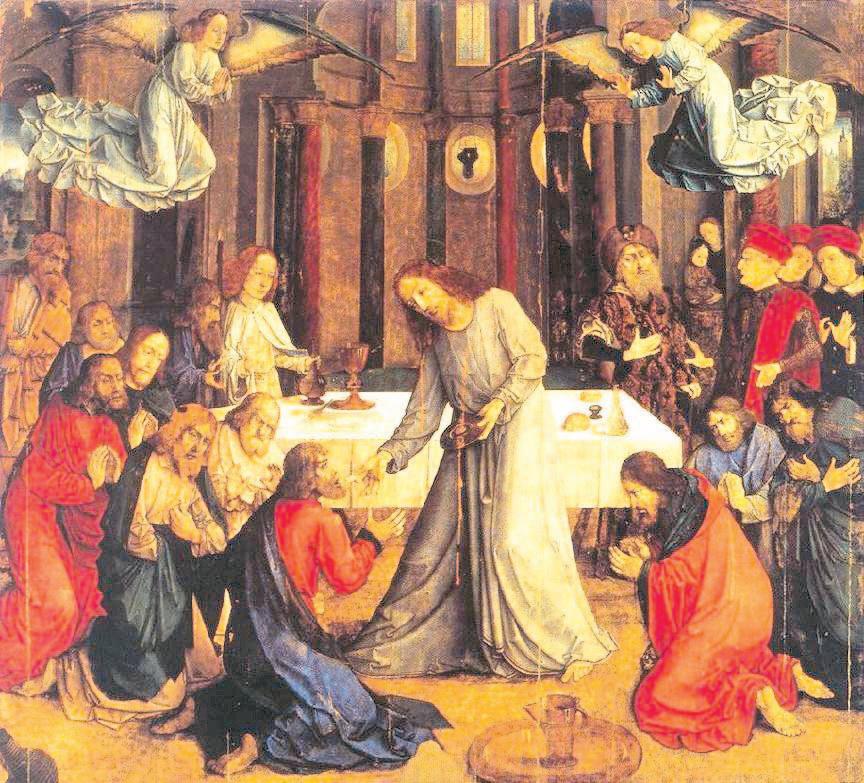
In April last year, Pope John Paul II launched a world-wide renewal of Catholic belief and practices in the Eucharist. He published an Encyclical letter to all Catholics, Ecclesia de Eucharistica (‘The Eucharist in the Life of the Church’). The climax of this renewal will be a Synod of
Bishops from every part of the world on the Eucharist, to be held in Rome next year.
More recently, Pope John Paul authorised the publication of a special Instruction (or practical teaching document) entitled The Sacrament of Redemption (or ‘Redemptionis Sacramentum’).
This deals with abuses and practices that have crept into celebrations of the Mass over time. The problem is that these have, at least partially, obscured the meaning Christ intended when he instituted the Eucharist. Fortunately, none of the abuses identified can be found in our
Diocese. However, there are a few practices that will need to change. Some relate to Priests, others to other Eucharistic ministers and others again to schools. This statement, that follows concerns only those practices that relate to the congregation.
continued
overleaf
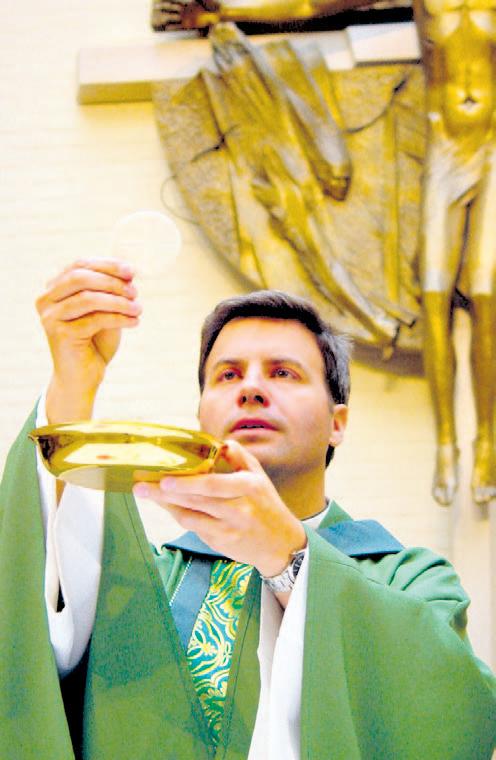
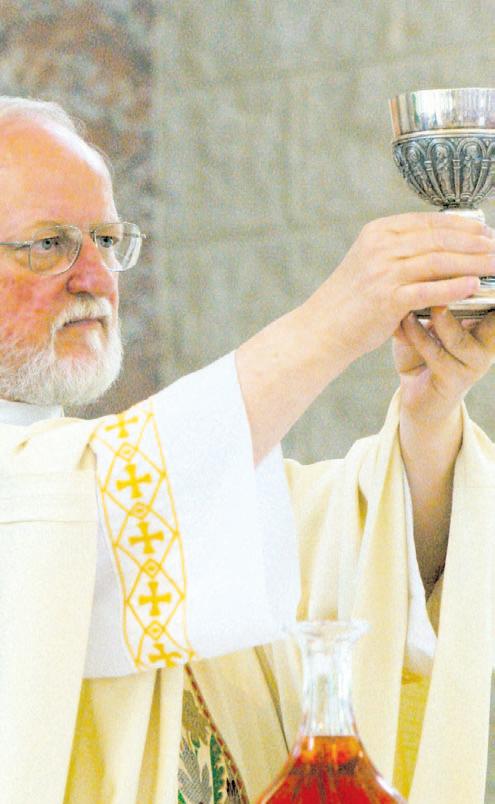

Since the power of Christ’s Resurrection conquered death, the greatest of all human limitations, no personal temptation, human weakness or failing, or any other sign of human sinfulness, is beyond its strength.
Our Lord, Jesus Christ, gave us the Eucharist during the Last Supper, the night before he offered his life on the cross to God the Father. We recall this as the Priest proclaims during the Eucharistic Prayer:
While they were at supper, he took bread, said the blessing, broke the bread, and gave it to his disciples, saying: ‘Take this, all of you, and eat it: this is my body which will be given up for you’.
In the same way, he took the cup, filled with wine. He gave you thanks, and giving the cup to his disciples said. ‘Take this, all of you, and drink from it: this is the cup of my blood, the blood of the new and everlasting covenant. It will be shed for you and for all so that sins may be forgiven. Do this in memory of me’.
During each Mass, as the Priest proclaims these words over the bread and wine, Jesus changes these into his Body and Blood. What still appear to our eyes to be bread and wine, really are bread and wine no longer. They are the Body and the Blood of the Lord1
What is Jesus doing during the Mass?
W hile all Catholics believe that Jesus is present under the appearances of bread and wine, not all realise what he is doing. During each Eucharist, Jesus is doing three things. These are essential elements of what we now call ‘the Paschal Mystery’.
First, Jesus is offering himself to God the Father in sacrifice, just as he did on Calvary.
Second, Jesus is calling all present to join him in this act of selfoffering. He calls them to offer their own lives too to God the Father. The Eucharist is, therefore, not simply something that Jesus does through the Priest. It is something that we do together with Jesus. That is why the Second Vatican Council called people to a full, conscious and active participation in Jesus’ offering.
Finally, Jesus is offering the power of his Resurrection to each person who is responding to this call. We draw upon this power to the extent that we have joined him by offering our lives, as he offers his, to God the Father.
This is the power that can change our lives gradually, but radically. Since the power of Christ’s Resurrection conquered death, the greatest of all human limitations, no personal temptation, human weakness or failing, or any other sign of human sinfulness, is beyond its strength. To St Paul, the greatest thing about being a Christian is that we can
‘know Christ and the power of his Resurrection’2.
How radical are the possibilities of this power for our lives?
To the extent that someone draws on the power of Christ’s Resurrection gradually they find this power changing them. For example, they find themselves rising daily above selfishness, to love; resentments, to forgive; hurts, to be self-giving; and jealousies, to accept people.
They find themselves better able to rise above temptations against justice, chastity, compassion and truthfulness. They experience guidance in times of confusion, consolation in sickness, deeper joy in times of difficulty, and inner strength in the face of trials.
Just think what possibilities the power of Christ’s Resurrection offers married and family life. Think of the struggles it can help us rise above in relation to our children, friends, work colleagues, and fellow parishioners, especially those we find it hard to love.
Finally, think of the inner peace the power of Christ’s Resurrection offers those who draw upon it to rise above dominating emotions, bad habits and the attitudes that make it hard to follow formed conscience. These are a few examples of the radical possibilities the Eucharist offers our daily lives.
In the early centuries of the Church, helping believers to develop their personalities by drawing on the fruits of the Eucharist, along with those of Baptism and Confirmation, was a major priority for Bishops, Priests and all involved in catechesis3
They took seriously the ideas that the Christian should be ‘a new creation’, living a ‘new humanity’, a ‘new life’4
Helping believers to develop ‘Christ-like’ personalities needs to be a major priority also today. The failure over later centuries to relate the basic experiences Jesus offers through the Eucharist to people’s lives is a major reason why so many people in more recent times have given up going to Mass.
My first question, therefore, to each of you is: ‘Where in your daily life do you most need the power of the Resurrection today?’ What do we need to do during each Mass?
Jesus is present during each Eucharist, offering himself in sacrifice to God the Father. To draw upon the power of his Resurrection, we need to join him by offering our own lives with his.
To the extent that each of us does this, Christ unites our offering — and our prayers — to his During each Eucharist, worshippers need to offer God the Father:
… their works, prayers, apostolic undertakings, family and married lives, daily work (or routines),
relaxation of mind and body... even the hardships of life if patiently born — all of these become spiritual sacrifice acceptable to God through Jesus Christ. In the celebration of the Eucharist, these may most fittingly be offered to the Father along with the Body of the Lord.
For me, preparation for the Eucharist is among the most important parts of my day. What am I going to offer from my life to unite myself with Jesus’ offering of himself? What of my work, my daily routines, my ministry, my projects? What of the temptations, challenges, pressures and anxieties that I face? And what am I going to offer from my relationships, including all to whom I am called to minister, especially the troubled, the sick, the suffering, those who have asked for my prayers.
These are the kinds of questions each of us needs to ask before a Mass. The answers will differ for young and old, married and single, sick and carers, employers and employees — and so on.
These answers form the path that leads to the deep joy, consolation and hope that comes with the power of Christ’s Resurrection.
My second question, therefore, to each of you is: ‘What are you offering of your life with Jesus to God the Father in this Mass?’
To fail to prepare for celebrations of the Eucharist in this way makes it very difficult for us to recognise the presence of Christ, and what he is doing. It makes it difficult also for us to join him by offering our lives to God the Father5
In some parishes and Mass centres across the Diocese, commentators or musicians invite people, before Mass begins, to calm themselves and focus upon the meaning of what is about to happen. This can only enhance people’s capacity to truly enter into the Eucharist by uniting themselves to what Jesus is doing.
Jesus makes our prayers his Catholics have always recognised the Mass as a supreme act of worship of God. It is the greatest and most powerful of prayers. This is because Catholics know the Mass is the prayer of Jesus, the Son of God.
They know too that if they bring their prayers, their needs and the needs of others as part of their self-offering to God the Father, Jesus makes their prayers his own. Again this requires preparation before the Eucharist. My third question to each of you, therefore, is: ‘What offerings, needs, petitions, thanks and praise, are you bringing to this Mass, so that Jesus will make them his?’
2 O n e a c t o f w o r s h i p i n t w o p a r t s T o appreciate why the document The Sacrament of
1 T h e m e a n i n g o f t h e E u c h a r i s t i n t e n d e d b y J e s u s
During each Mass, as the Priest proclaims these words over the bread and wine, Jesus changes these into his Body and Blood.
What still appear to our eyes to be bread and wine, really are bread and wine no longer. They are the Body and the Blood of the Lord.
The sacrifice of the Mass concludes when the celebrant and co-celebrating Priests receive Holy Communion. Photos:CNS
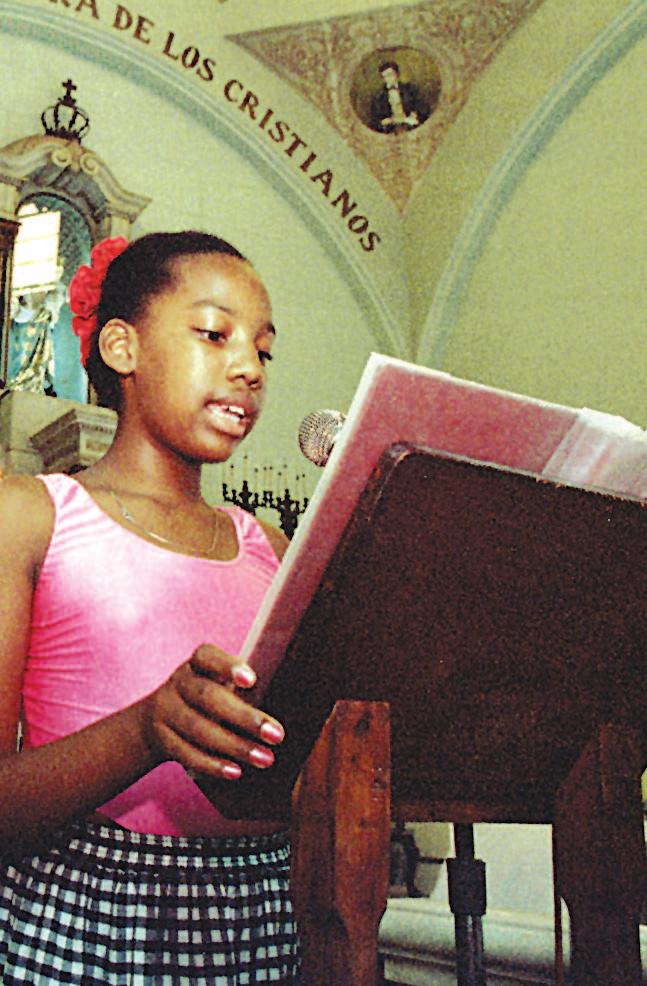
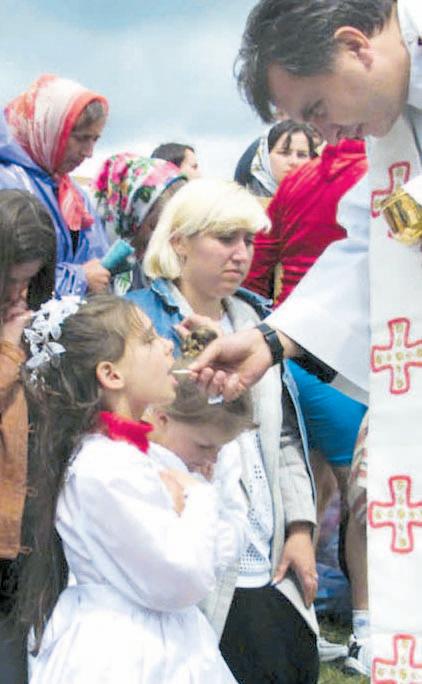
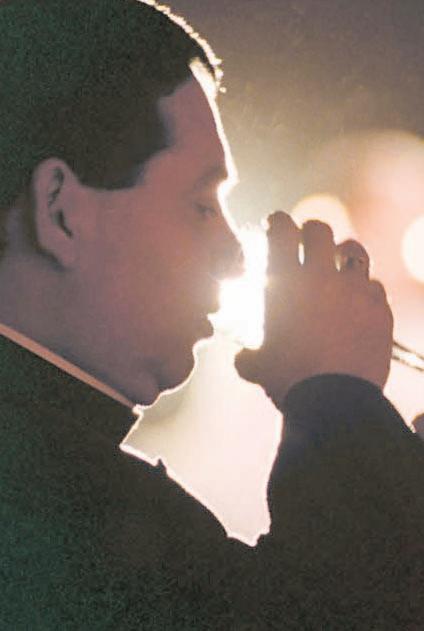
...if parishioners fail to unite themselves to Christ, a parish’s community will be superficial. It will lack a sense of Christian mission, an unfailing sign that a parish is also a Christian community.
Redemption seeks to stop some of the practices that have crept into celebrations of the Eucharist, we need to remember that every Eucharistic celebration comprises two parts. These are:
● the Liturgy of the Word
● the Liturgy of the Eucharistic Sacrifice.
Together, these make Christ present — his life, death and Resurrection. It is through:
● the Liturgy of the Word that we are called to live like Christ, and to convert from whatever in our lives is contrary to his teachings
● the Liturgy of the Eucharistic Sacrifice that we are called to die to what is not Christ-like in our thoughts, words and actions, so as to draw on the power of his Resurrection.
The sacrifice of the Mass concludes when the celebrant and concelebrating Priests receive Holy Communion.
3 P r a c t i c e s w e n e e d t o c h a n g e
The Sacrament of Redemption calls for changes to a variety of practices that have crept into celebrations across the world of the two parts of the Eucharist. The following are relevant to our Diocese.
Liturgy of the Word
(i) Proclaiming the scriptures during Mass is a most sacred task. It should never be taken for granted. If the Scriptures are not proclaimed carefully and clearly, and people cannot hear or understand them, Christ’s purpose is difficult to achieve.
It is crucial, therefore, that readers at Mass prepare carefully and never go to the lectern unprepared. Let them always proclaim the scriptures clearly so that everyone can hear.
(ii) To achieve Christ’s purpose, readings during this Liturgy should only be from the Word of God. This is not the place for nonscriptural poems or readings.
(iii) The homily during the Liturgy of the Word should be given only by an Ordained Minister of the Word - the Celebrant, another Priest or a Deacon.
(iv) The homily, drawing on the scripture readings, should relate the mysteries of the faith and the norms of the Christian life to the lives of the congregation. The homily during the Funeral Mass should relate the scripture readings to what is being experienced by the bereaved within the grieving of their hearts.
In funeral Masses, therefore, eulogies should never
be given during the Liturgy of the Word, but either after the Post Communion Prayer or at the cemetery.
The Eucharistic Sacrament
(v) The Eucharistic Prayer is the prayer of sacrifice. Christ himself prays this as it is proclaimed by the Priest6 Being a prayer of the whole Church, no one has the right to change or modify a Eucharistic Prayer. This means that the congregation should not say any part of the Eucharistic Prayer, but only proclaim the Acclamation after the Consecration, and the final Amen.
4 R e c e i v i n g H o l y C o m m u n i o n
Receiving Jesus in Holy Communion completes our participation in the Eucharist. The celebrant receives Holy Communion first to complete the sacrifice. After this, Communion is received by the Deacon, others on the sanctuary and the congregation.
Holy Communion always brings special blessings, whether we receive it during a Mass, or apart from Mass. It is important to recall these blessings because so many in our Diocese do not have access to Sunday Mass each week, and often join in celebrations of the Liturgy of the Word and Holy Communion.
Like the Mass, the spiritual blessings flowing from Holy Communion can also change aspects of the lives of those who receive it gradually, but radically. Again, this depends upon the extent to which they offer their lives to God the Father — even if outside the Eucharist.
Holy Communion deepens the intimacy of our personal relationship with Jesus7. Again, our personalities gradually change to the extent we allow his influence to deepen in our lives.
First, Jesus nourishes the spiritual within us8. This includes human qualities that are ours because we have been created in the image and likeness of God, such as love, goodness, mercy and justice. Then there are the spiritual gifts we received through Baptism and Confirmation, the Sacrament of Marriage, and the Sacrament of Holy Orders.
Second, Jesus forgives venial sins, heals the spiritual damage they cause, and strengthens us against temptations to sin again — especially to commit mortal sin9 Our personalities, especially our potential for goodness, are strengthened, and the chains of our human weaknesses weaken.
Third, Christ strengthens his love within us10. Our capacity to love God and neighbour grows stronger. Increasingly we can keep the Commandments as Jesus taught them, and overcome
temptations to do wrong.
Fourth, as Jesus draws each of us closer to himself through Holy Communion, he draws us closer also at a deeper spiritual level to each other. This is the way he deepens the sense of Christian community among us11. This includes deepening the bond between spouses, families and friends.
This is the foundation that changes parishes into vibrant Christian communities. However, if parishioners fail to unite themselves to Christ, a parish’s community will be superficial. It will lack a sense of Christian mission, an unfailing sign that a parish is also a Christian community.
Finally, as the influence of Christ grows in those drawn closer to him through Holy Communion, so do his basic attitudes. These include commitment to the poor and needy, and a deepening desire to Christian unity12
My final questions to each of you, therefore, is: ‘Which of the blessings of Holy Communion are you praying for most today?’ and ‘How focussed are you on the One you are receiving?’
From these brief points, it is obvious that Holy Communion can affect those who receive it prayerfully, conscious of what Holy Communion means and what Christ seeks to do in those who receive it with meaning. With this in mind, we turn again to The Sacrament of Redemption.
5 P r a c t i c e s w e n e e d t o c h a n g e
(i) The Communion Rite, which begins with the Lord’s Prayer, is meant to focus our attention on the union with Christ that brings about the blessings of Holy Communion.
The Sign of Peace, an optional element in the Communion Rite, should not hold up unduly the Eucharistic celebration. It should not change the focus from Christ, who unites us to each other as a human community. It should be made only to ‘those who are nearest’. Priests too should no longer offer the Sign of Peace to people outside the sanctuary, except in special situations such as to offer this Sign to grieving relatives at a funeral.
(ii) When receiving Holy Communion, we need to acknowledge the One we are about to receive — Jesus Christ, the Son of God. It is recommended, therefore, that all approaching to receive Holy Communion show some sign of reverence — such as a bow or a genuflection. Let receiving Holy Communion never become a matter of routine for us. c o n t i n u e d o v e r l e a f
Holy Communion deepens the intimacy of our personal relationship with Jesus. Again, our personalities gradually change to the extent we allow his influence to deepen in our lives.
... receiving Holy Communion, we need to acknowledge the One we are about to receive — Jesus Christ, the Son of God.
Photos:CNS
Proclaiming the scriptures during Mass is a most sacred task. It should never be taken for granted
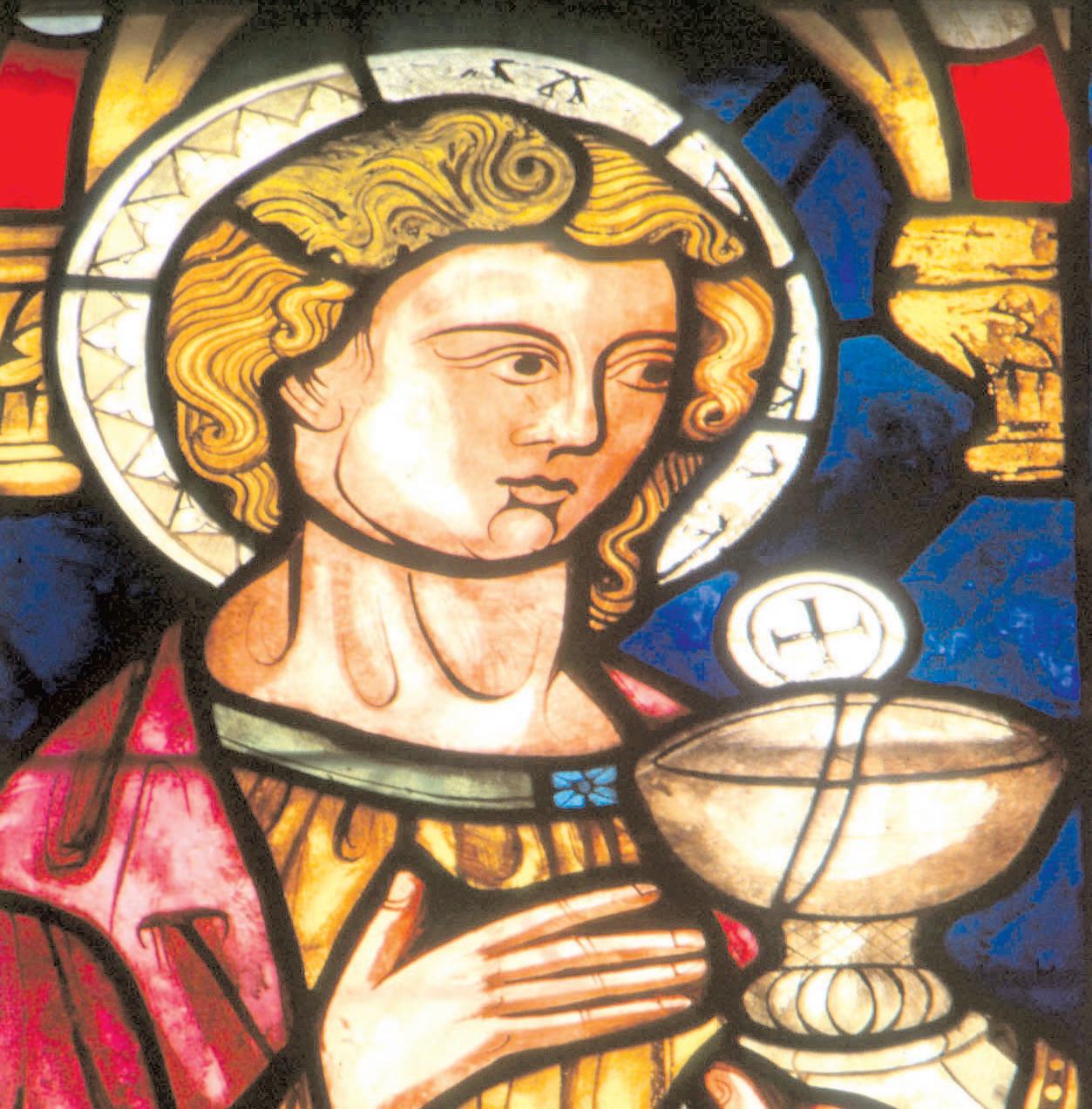
(iii) Jesus gave his Body to the Apostles during the Last Supper — they received it. The Apostles did not give the Body of the Lord to themselves.
In the same way, Holy Communion should be given by the celebrant, another Priest or another minister of Holy Communion. No one should take Holy Communion for themselves.
(iv) During the Last Supper, Jesus gave the cup to his disciples, telling them to ‘take and drink’. In the same way, those wishing to receive the Blood of the Lord should take the cup given to them, and drink from it.
Receiving the Blood of the Lord during Holy Communion is not
strictly necessary, for the Risen Christ is fully present, Body and Blood, soul and divinity, in the consecrated Bread. And, indeed, sometimes it is not practical to offer Holy Communion during a Mass under the appearances of both bread and wine.
(v) One practice that is no longer permitted is ‘intinction’, where people dip the Host into the cup of the Blood of the Lord. This practice has already been stopped in other dioceses. It was never introduced into this diocese, but crept in through people from elsewhere.
Widespread experience is that sometimes drops of the Blood of the Lord are splashed accidentally on people’s clothing, as well as on the floor. Also, often people dip
their fingers into the precious blood, and this is a risk to hygiene. Intinction can be less hygienic than drinking from the cup. After drinking from the cup, the Chalice is wiped with a purificator, whereas whatever is left from the person’s fingers remains after intinction.
From now on, those wishing to receive Holy Communion under the appearances of both bread and wine should only do so by receiving the Body of the Lord from the Priest, and drinking from the cup.
Conclusion
People often do not like change. Change is always more difficult if we focus upon the practice being changed, rather than the reason for the change. Let us all keep in mind the purpose of
these changes to the celebration of the Eucharist. This is that our celebrations of the Mass achieve first and foremost the intentions of the Lord.
Let each of us renew our efforts to offer our daily lives fully with the Lord in each Eucharist. May we all experience the personal change that is possible for all who draw on the power of Christ’s Resurrection for their daily lives.
18 July 2004
F o r f u r t h e r r e a d i n g
Ecclesia de Eucharistica, encyclical by Pope John Paul
Bishop Gerard J Holohan
II on the Eucharist in the life of the Church, can be read on the Vatican website at www.vatican.va Redemptionis
(The Sacrament of Redemption), also viewable at www.vatican.va
Sacramentum
A church window in Soest, Germany, depicts St John the Apostle. John was one of Christ's 12 apostles and traditional author of the fourth Gospel. He was a fisherman and possibly a disciple of John the Baptist.
Footnotes 1.Catechism of the Catholic Church 1353, 1377, 1413 2.Philippians 3:10 3.General Directory for Catechesis 33, 64; 4.Catechism of the Catholic Church 1265, 1227 5.Galatians 6:15;2 Corinthians 5:17 and Romans 6:4 7.Vatican II:Constitution on the Church 34 8.Catechism 1548 9.Catechism 1391 10.Catechism 1392 11.Catechism 1393-1395 12.Catechism 13941 13.Catechism 1396 14.Catechism 1397-1398
Photo:CNS
Persecution familiar ground for China’s illegal Christians
China seems determined to restrict the spread of Christianity in the country. Authorities are now using the same tactics against Christian churches that they deployed to quash the Falun Gong spiritual movement, the Wall Street Journal reported late in July.
The crackdown, ordered late last year by China’s political leadership, according to the Journal, is being carried out by an offshoot of the task force that coordinated the campaign against the Falun Gong. The main focus is on the rural zones, where religious fervour is on the rise.
“The spread of Christianity is really worrying the government, so it has become a target,” said Kang Xiaoguang of the Chinese Academy of Sciences to the Wall Street Journal
The government is targeting what it terms “cults,” which are only loosely described. In practice the term is applied to whatever groups have not received official permission to operate. Apart from the continued persecution of Catholic groups that do not submit to official control, the government is particularly worried about evangelical and Protestant groups, who have been rapidly expanding.
Chronicle of persecution
Two groups active in documenting religious persecution, the Centre for Religious Freedom, a division of Freedom House, and Compass Direct, have collected news on the crackdown by authorities from a wide range of
sources. Among the reports from past months are the following items.
■ July 22 - More than 100 religious leaders were arrested in the western province of Xinjiang. The arrests came during a meeting organised by the Ying Shang Church, a large house-church network headquartered in Anhui Province. The arrests came shortly after 40 house-church leaders were arrested while attending a training seminar in Cheng Du City in the province of Sichuan.
■ July 19 - Chinese authorities detained and interrogated housechurch leader Samuel Lamb after worship services on June 13. Ten of his co-workers were also detained and interrogated. This is the first time in 14 years that Chinese authorities have taken repressive steps against Lamb, who reportedly hosts 3,000 worshippers per week at his meeting place in Guangzhou.
■ July 5 - A 34-year-old woman was beaten to death in jail on the day she was arrested for handing out Bibles in Guizhou province. Police arrested Jiang Zongxiu on June 18 on suspicion of “spreading rumours and inciting to disturb social order,” according to the local press. Her mother-inlaw, Tan Dewei, was arrested with Jiang but later released. She said police kicked Jiang repeatedly during interrogation.
■ June 23 - The Vatican strongly protested to China over the arrest of three Catholic bishops — one of them 84 years old — in the previous month. The statement called the bishops’ arrest “inconceivable in a country based on laws.” The 84-year-old bishop of
Xuanhua was arrested on May 27. Another two bishops, from Xiwanzi and Zhengding, were detained for several days in June.
■ May 24 - Gu Xianggao, a teacher in a house-church group, was beaten to death by Public Security Bureau officers.
■ May 16 - Two Catholic priests, Lu Genjun and Cheng Xiaoli, were arrested on May 14 in An Guo, Hebei province, by government security policemen. The priests were set to begin classes for natural family planning and moral theology courses. Father Lu was previously arrested on Palm Sunday 1998 for a short period. He was arrested again shortly before Easter in 2001 and detained for three years.
■ May 10 - Chinese Christians gave evidence of persecution at a special meeting called by the UN Commission on Human Rights in April. The speakers testified to beatings, imprisonment, torture and harassment. Female members of the South China Church also testified to torture and sexual assault at the hands of police officers. Their evidence was supported by documents and a video showing the destruction of a church in Zhejiang province.
Religion feared
An in-depth look at the reasons behind the government’s persecution of religious groups was published on March 31 by the Norway-based human rights group Forum 18. The 10th National People’s Congress that concluded in Beijing on March 14 included an amendment to the Chinese Constitution, stating that “The state respects and safe-
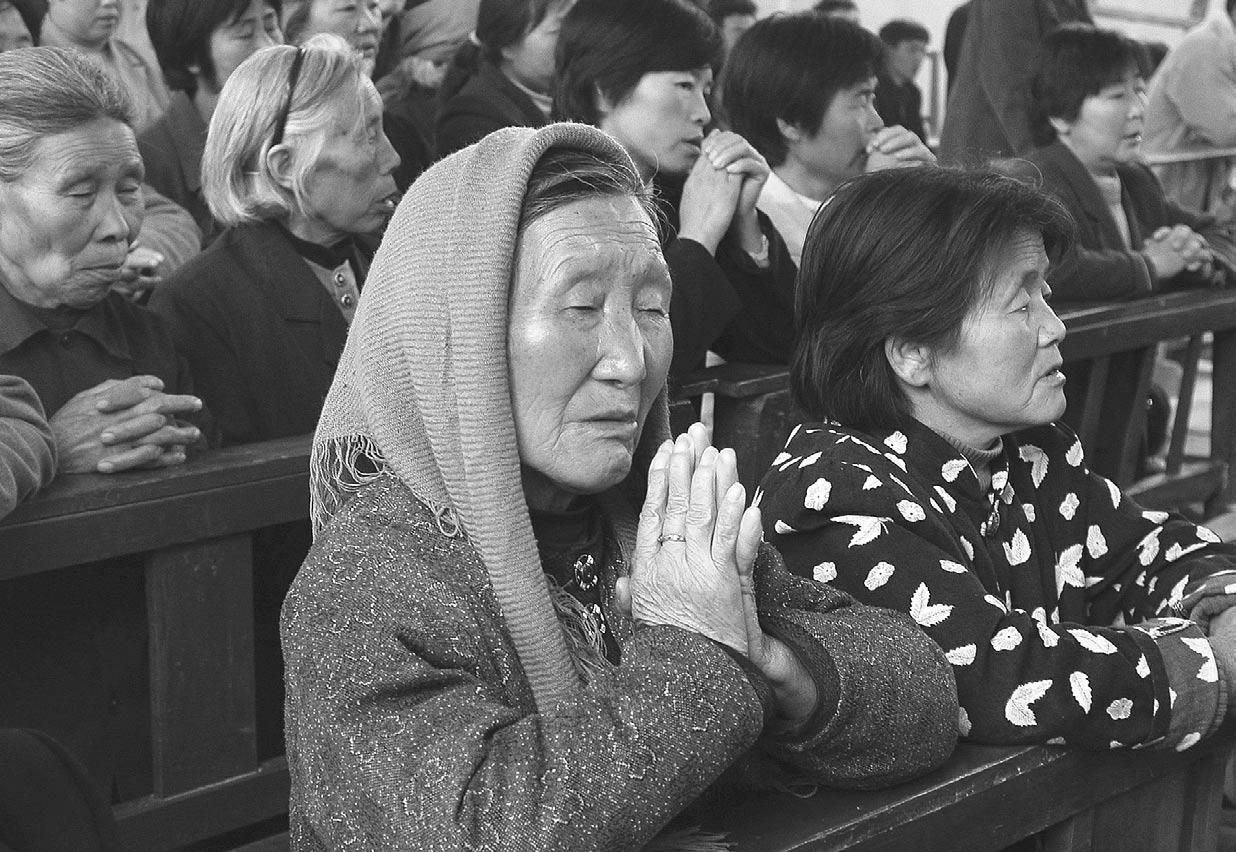
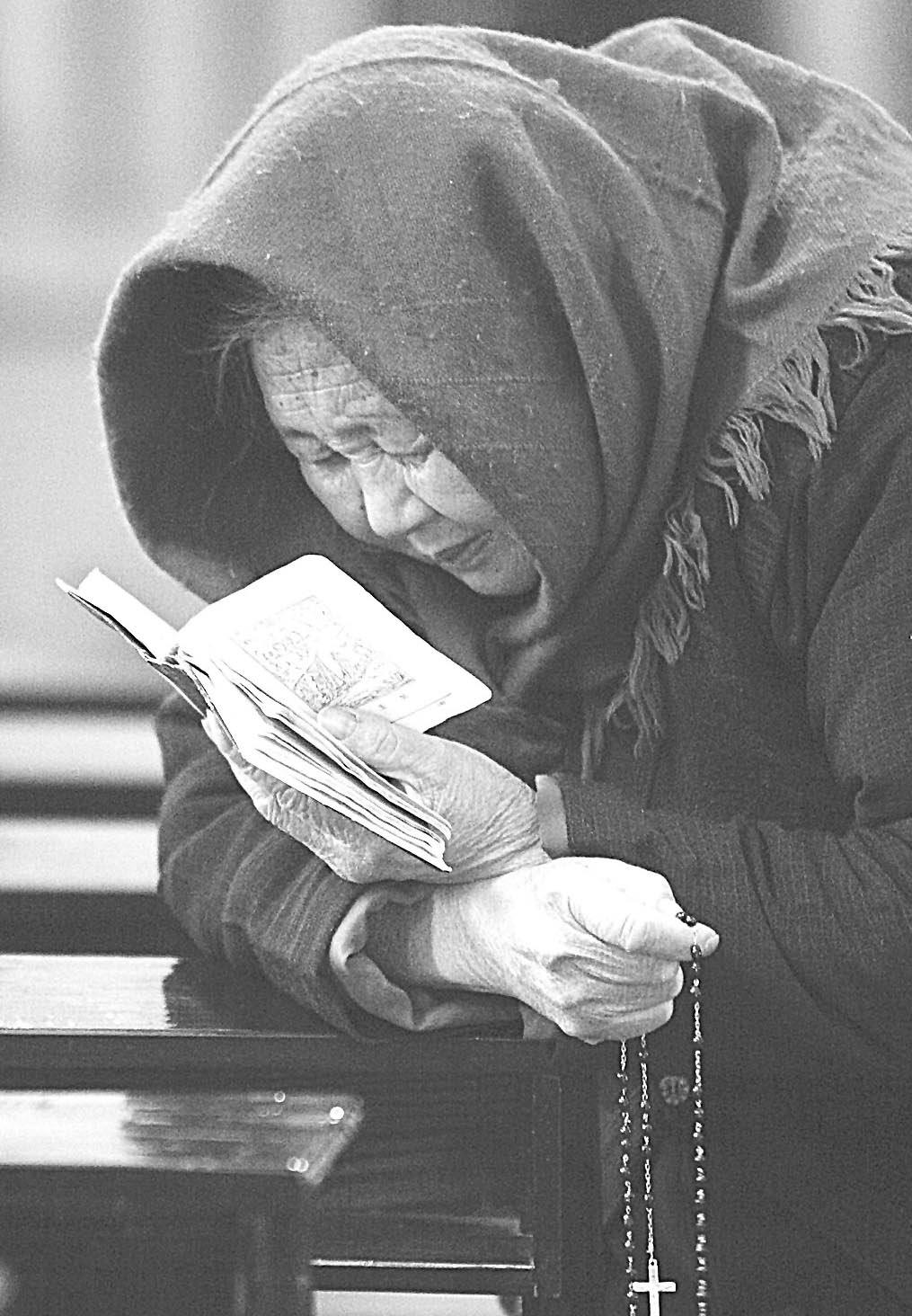
guards human rights.” Forum 18 observed that this new provision aroused scepticism among commentators, given that the constitution already contained safeguards protecting human rights. Those safeguards have not impeded past violations.
In fact, the report noted that on March 5, the very day the meeting opened, Bishop Wei Jingyi of Qiqihar in Heilongjiang province was arrested. And on the same day, police arrested, detained and beat Hua Huiqi, an unofficial house-church leader in Beijing.
A major factor behind the repression, according to Forum 18, can be found in official Communist ideology. Official policy bars Communist Party members from adhering to any religious belief or participating in religious activities.
And even if Communist ideology is no longer so popular, as recently as November an article in the People’s Daily, the Communist Party newspaper, entitled “A Historical Study of the Communist Party of China’s Theory and Policy Concerning Religion,” inveighed against religion.
“To uphold the fundamental opposition in world outlook of Marxism and religion,” stated the article, “it is of course essential to uphold the fundamental opposition of science and religion. Religion is an illusory, inverse reflection of the external world, whereas the task of science is to understand the objective world in accordance with reality, advocating seeking truth from facts and pursuing objective truth.”
Forum 18 said that the government further fears religion because it represents a threat to the Communist Party’s ability to mobilise the masses, particularly the peasantry. Officials estimate there are at least 100 million
believers of all faiths throughout China, and authorities are worried that religious organisations could repeat what happened in the past, when religion was a key factor in popular revolts.
Concern over human rights
China also continues to maintain tight controls over political expression and organisation. An April 14 press release by Amnesty International outlined some of the concerns over human rights in China.
■ Crackdown on Internet users: By the end of March, at least 60 people had been detained or imprisoned after accessing or circulating politically sensitive information on the Internet. According to Amnesty the Internet censorship practised by the Chinese government is the most extensive in the world, and many of the toughest controls have been issued since 2000.
■ Death penalty: China continues to execute more people than the rest of the world combined. Executions are carried out following trials that fall far short of international fair-trial standards. AI declared that the death penalty continues to be used extensively and arbitrarily as a result of political interference. And people continue to be executed even for nonviolent crimes such as tax fraud and pimping.
■ Torture, unfair trials and administrative detention: Illtreatment remains widespread in police stations, prisons and labour camps. Those accused of political and criminal offences continue to be denied due process and detainees’ access to lawyers and family members is severely restricted. China’s economic progress in recent years has yet to be matched by advances in religious and political liberty.
The Record 5 august 2004 11
- Zenit
A Chinese woman prays at a government-sanctioned church in Shanghai, China, on March 8. Mainland China has an underground church that professes loyalty to the Vatican. The government-approved Catholic community, established by communist authorities in the late 1950s, officially spurns Vatican ties, but most of its bishops are said to have reconciled secretly with the Holy See. CNS photo from Reuters
W o r r i e d b y t h e s p r e a d o f C h r i s t i a n i t y , C h i n e s e a u t h o r i t i e s a r e r e s o r t i n g t o t h e i r u s u a l m e t h o d s i n h a n d l i n g ‘ i l l e g a l ’ C h r i s t i a n i t y , b y s t e p p i n g u p h a r d - l i n e m e a s u r e s
An unidentified woman prays last month during Mass at a Catholic church in the province of Shanxi Xian, China. CNS photo by Sean Sprague

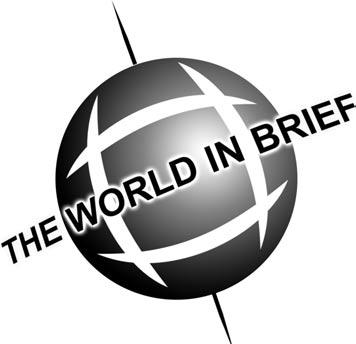
Haiti needs new approaches in solidarity, priest tells forum
QUITO, Ecuador (CNS)Haiti is in need of a new kind of solidarity from the international community, the head of Caritas Haiti told delegates at the Americas Social Forum.
Father Wilnes Tilus suggested that international efforts to build democracy in Haiti over the last 11 years are off-track and need to be re-evaluated.
“There can be no democracy in a country where the people live in misery,” Father Tilus said at a July 28 workshop. “We need a minimum base of economic conditions to ensure a base for democracy.”
Father Tilus decried the fact that the international community has just spent millions of dollars on a new development plan for the country without any real consultation with the country’s poor.
The Haitian priest spoke at one of about 300 workshops and activities scheduled at the July 25-30 forum in Quito.
Church in India responds well to HIV
BANGKOK, Thailand (CNS)The Church in India is overcoming its fear of AIDS and responding well to the challenges of HIV, said the new archbishop of Bangalore, India.
Archbishop Bernard Moras of Bangalore told Catholic News Service that the Indian Church has increased its AIDS ministry programs, offering treatment, education and other services.
“Many in the Church had reservations in the past. People were afraid. And we didn’t think the pandemic would come to India in the dimensions it has. The Church wasn’t ready. But today it’s aware, and throughout the country people from all faiths are looking to the church for leadership,” Archbishop Moras told Catholic News Service.
He heads the health commission of the Indian bishops’ conference.
On July 22, Pope John Paul II appointed him as the new archbishop of Bangalore. India has more than 5 million people living with HIV and AIDS; it is the second-highest number in the world.
International News
Catholic news from around the world
Pope calls on Muslims, Christians to unite after Iraqi church attacks
By Carol Glatz
Deploring a string of deadly car bomb attacks on five Catholic churches in Iraq, Pope John Paul II called on Muslims and Christians to unite against “all forms of violence” and to work together to bring peace and stability to the country.
In a telegram released on on August 2 by the Vatican, the pope said he was saddened and “deeply struck” upon hearing the news of the August 1 attacks that left at least 11 people dead and 50 others wounded.
A wave of explosions ripped through churches in Baghdad and the northern city of Mosul early on August 1 just when parishioners were attending or leaving their places of worship.
“At this time of trial, I am spiritually close to the Church and the Iraqi people,” read the Pope’s message, which was sent to the head of the Assembly of the Catholic Bishops of Iraq, Chaldean Patriarch EmmanuelKarim Delly.
The Pope renewed his “heartfelt solidarity with priests and the faithful,” assuring them of his prayers and “constant commitment to a climate of peace and reconciliation being established in this beloved country, as a soon as possible.”
He called on Muslims and Christians, “all believers in the one compassionate and merciful God, to unite and deplore every form of violence and to cooperate for the return of harmony on Iraq’s tormented soil.”
The five Catholic church complexes were the target of a string of bombings on August 1. The explosions occurred between 6 and 7 pm, when most parishioners were attending evening Sunday Mass or just leaving their churches.
Iraq accused a terrorist group linked to al-Qaida with the attacks.
The first blast struck outside an Armenian Catholic church in
Churches hit
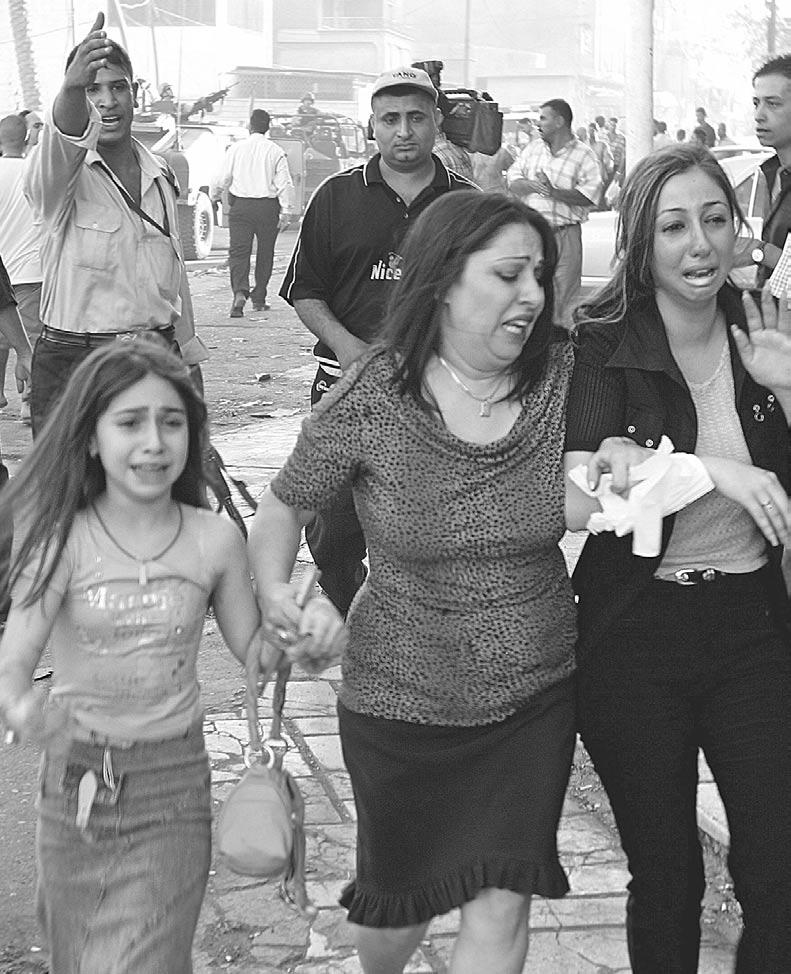
Baghdad; it was followed by another explosion a quartermile away at a Syrian Catholic church.
Two Chaldean Catholic churches were hit elsewhere in the capital by car-bomb blasts, with the largest number of casualties coming from the Sts Peter and Paul Cathedral and its adjoining seminary. At least five people, possibly, 13 were killed there, according to reports on August 2 by the Rome-based missionary news service, MISNA, and Caritas Internationalis.
In the northern city of Mosul, a car bomb went off outside a Chaldean church, leaving at least two people dead. At least one other unexploded car bomb
was found outside another Chaldean church in Baghdad.
The targeted explosions marked the first time Christian churches were attacked since the start of the 16-month conflict in Iraq. A similar tactic was employed against Shiite Muslim holy sites in Baghdad and Karbala on March 2 when several nearsimultaneous explosions hit during an important Shiite feast day, killing more than 85 people and wounding 230 more. Vatican and Iraqi church leaders condemned the latest attacks.
Retired French Cardinal Roger Etchegaray, who has traveled to Iraq as a papal envoy for peace, told the Italian newspaper La
Repubblica on August 2 that the attacks did not just affect Christians but “all people because they involve the fundamental freedom of religion.”
Cardinal Jose Saraiva Martins, head of the Congregation for Saints’ Causes, told the same daily that it was “unimaginable” that Christianity would become a target when the Church and the Pope have, “with tireless dedication, always defended the freedom of religion and of humanity.”
A top Iraqi Church official in Rome said those responsible for the blasts were intent on “demolishing the new Iraq and its new freedoms.”
Iraqi-born Father Philip Najim, the Chaldean patriarch’s representative in Rome, told Catholic News Service on August 2 he believes the attacks were orchestrated by foreign fighters infiltrating the country.
“These are Iraqi churches. Whoever is doing it isn’t Iraqi, isn’t Muslim and isn’t religious, because no religion teaches this,” he said.
“They have come because they have their own interests, but they don’t have the courage to say to us what exactly they want. They are just killing to create confusion and kill innocents who already suffered enough,” he said.
Cardinal Etchegaray emphasised the need for UN intervention in Iraq. “I hope the news of this catastrophe pushes the international community to react with strength, but also in a spirit of great solidarity,” he said. Father Najim added that Iraq’s interim government “is not in the position to take control over the situation.”
“The United Nations ... has a responsibility to care for the Iraqi people who have been suffering so long. We cannot be left like this,” he told CNS.
Priest tells Christians now is the time to act it
French priest calls for solidarity with Jews in wake of anti-Semitism
By Jonathan Luxmoore
OXFORD, England (CNS) — A French Church official has called on Christians to show “fraternity and solidarity” with Jews after the Israeli prime minister urged Jews to leave France because of a rise in anti-Semitic attacks.
“At this difficult time, Catholics should make sure they show fraternity and solidarity with Jews. They should also ask, above all, for the law of the land to be respected,” said Father Patrick Debois, head of the French church’s Commission for Dialogue with Judaism.
“It’s true anti-Semitism is growing, making life uncomfortable for Jews here,” he said.
In a telephone interview, Father Debois told Catholic News Service that Church leaders were concerned by a recent rise in anti-Semitic violence.
He said anti-Jewish feeling had been stoked by France’s Arabic media, although most aggressive acts were committed by people under the age of 16.
“It’s important to remember that when one part of the French population reacts against the Jews there’s a growth of pro-Jewish sympathy in the other,” he said.
Father Debois told CNS that neo-Nazi attacks on Jewish and Catholic cemeteries in Alsace in early May had shown that all reli-
gious groups were potential targets for extremists.
“That a Jewish cemetery was attacked on a Friday evening and a Catholic one on Saturday certainly means something,” the priest said.
In a July 18 speech in Jerusalem, Israeli Prime Minister Ariel Sharon urged Jews to immigrate to Israel because of the rise in anti-Semitic incidents in France.
He said France was witnessing a “new form of anti-Semitism” based on “anti-Israeli moods and anti-Israeli propaganda” among the country’s North African Muslim minority. France has the world’s thirdlargest Jewish community, which makes up 1 per cent of the French population. Jews in France are
outnumbered almost 10-to-1 by Muslims, who comprise 10 per cent of France’s population of 59 million.
French media recently reported that France’s Interior Ministry had confirmed 135 anti-Semitic acts in the first half of 2004, compared to 127 in all of 2003. Earlier this year, France’s chief rabbi warned Jews not to wear skullcaps in public.
A 2003 survey by the United Jewish Social Fund and United Jewish Appeal showed the Jewish population in France had fallen by 33,000 since 1980, with more young Jews expressing a wish to leave for Israel.
Jewish community sources said there has been a rise in recent years of Jews leaving France.
The Record 12 5 august 2004
Worshippers flee the bombing of an Iraqui Christian church on August 1.
International News
Catholic news from around the world
Doctors gather to hear latest natural fertility good news
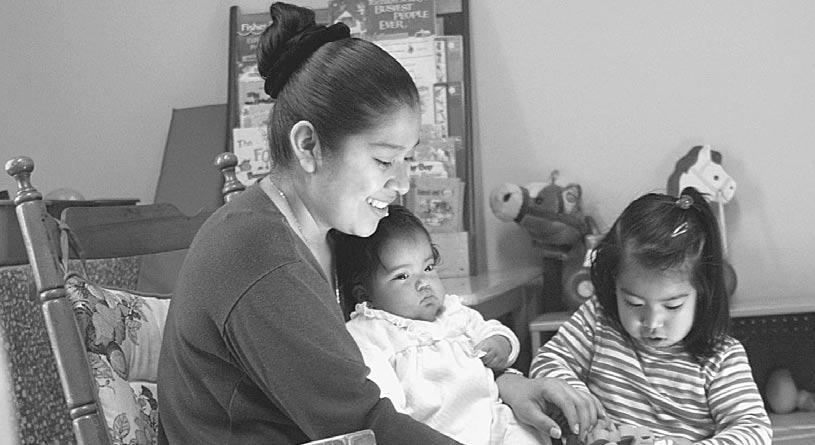 By Lisa Schulte
By Lisa Schulte
OMAHA, Neb. (CNS) — More than 400 health care professionals from 11 countries and 35 US states gathered in Omaha from July 21-24 to learn more about NaProTechnology — shorthand for natural procreative technology — at the American Academy of FertilityCare Professionals’ 23rd annual conference.
The theme of the four-day conference, sponsored by the Pope Paul VI Institute and Creighton University Medical Centre, was “Introducing NaProTechnology to the World: Medical Science at the Service of the Human Person.”
Dr Thomas Hilgers, director of the Pope Paul VI Institute and codeveloper of the Creighton model of natural family planning and NaProTechnology, presented his new 1,300-page medical textbook, The Medical and Surgical Practices of NaProTechnology, at the international conference.
Hilgers, a member of the Pontifical Academy for Life and the Pontifical Council for the Family, describes
Kenyan
NaProTechnology as “a union of education and technology in a way which allows us to evaluate and treat a whole host of women’s health problems, which does not use contraception, sterilisation, abortion or other artificial reproductive technologies, and is thus completely consistent with Catholic teaching.”
What makes NaProTechnology medically different from contemporary reproductive medicine is the fact that it doesn’t just treat women’s health problems, such as premenstrual syndrome and infertility, but it gets to the underlying causes of those problems.
That is achieved by targeting a woman’s menstrual cycle using the Creighton Model FertilityCare System, a natural means to regulate fertility developed at the Creighton University School of Medicine, Hilgers said.
NaProTechnology enables women to monitor in an easy and objective way a variety of different biological markers that reflect the occurrence of various hormonal events during the course of the menstrual cycle, he said.
As soon as those hormone levels are discovered, “all of a sudden you have a whole new diagnostic tool and you can implement treatment strategies, which are very helpful and effective,” he added.
Hilgers said he was inspired to create NaProTechnology after reading Humanae Vitae, Pope Paul VI’s 1968 encyclical reaffirming the Church’s opposition to artificial contraception. He said he has used it to help women with infertility problems, as well as those who have other hormone-related problems, such as repetitive miscarriages, threatened premature labor, recurrent ovarian cysts, postpartum depression and abnormal bleeding.
The results, although not 100 per cent accurate, have been better than what is available to women today in the area of reproductive science, he said.
“Our success rate in almost anything we touch right now is much better than what contemporary medicine has to offer,” Hilgers told The Catholic Voice, newspaper of the Archdiocese of Omaha.
NaProTechnology has about a 70 per cent success rate in dealing with all forms of infertility, Hilgers said. Less than 1 per cent of all women with impaired fertility are helped with in vitro fertilisation programs in the United States, he said. For years, medical science has been focused on controlling women’s fertility, instead of educating women about how their bodies work and function, Hilgers said.
“We’re trying to empower women to understand their fertility, so that it’s not the curse that everybody keeps calling it, but it’s actually something that is normal and healthy,” he said.

Caritas responds as floods hit Bangladesh
DHAKA, Bangladesh (CNS)Church organisations are distributing aid to millions affected by monsoon floods that have submerged about two-thirds of Bangladesh. At least 394 people had died by July 27, and 40 of the country’s 64 districts were still submerged, reported UCA News, an Asian Church news agency based in Thailand.
According to Bangladesh’s Food and Disaster Management Ministry, 28 million people have been affected by the flooding.
In response to the crisis, Caritas Bangladesh has implemented a US $250,000 emergency relief distribution program to help thousands of affected families, said Benedict Alo D’Rozario, disaster management and development director of the national Caritas unit.
D’Rozario told UCA News on July 27 that 18,200 families in the 42 worst-affected subdistricts of the country will receive food aid in the first phase of emergency relief, and 10,000 more families will be given emergency help in the second phase. Each family will get 33 pounds of rice, six pounds of edible seeds, two pounds of salt and a quart of soybean oil.
World Vision Bangladesh, an international Christian humanitarian and development organisation, is also distributing US $640,363 worth of aid to 75,150
families in 19 affected subdistricts of the country.
World Vision has already distributed 200 tons of wheat, peas and oil in 10 subdistricts of Bangladesh, plus 7,000 packages of clothes and household utensils.
Government officials told reporters that the deaths were caused mostly by drowning and snake bites. They estimated that 2.5 million acres of crops have been damaged by floods, that 28 million people have been affected and that 3,954 shelters are accommodating about 1.4 million flood victims.
On July 26, the Bangladeshi government held a meeting to discuss the overall flood situation and relief operations with 56 nongovernment organisations, including Caritas and World Vision. That meeting, chaired by Food and Disaster Management Minister Chowdhury Kamal Ibne Yusuf and two other ministers, requested nongovernment organisations to coordinate with the government for better flood and post-flood management.
Caritas workers said disasterprone Bangladesh is affected annually by one or more major disasters such as cyclones, tornadoes, floods and drought. They recalled that floods in 1998 affected 30 million people and left 60 percent of the country under water for more than two months.
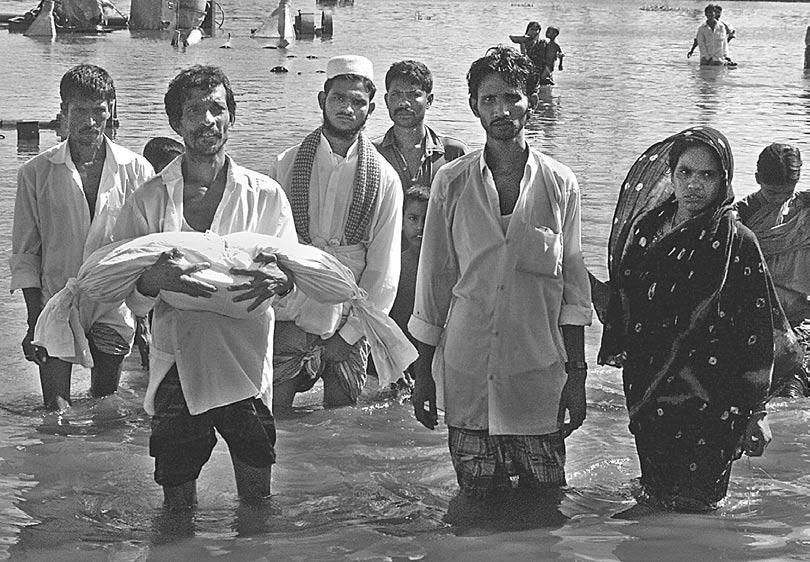
priest warns millions could die in nation’s drought
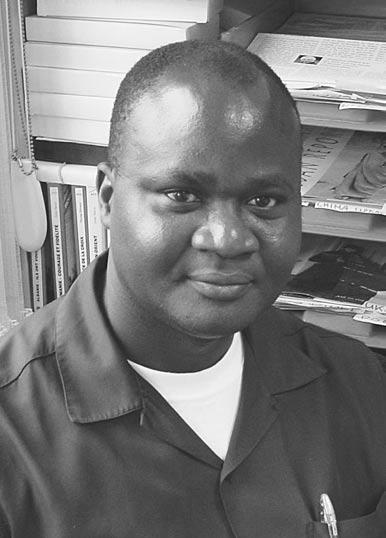
AIDS also an increasing problem
A poor harvest is already putting many people in Kenya on the breadline, but the worst could still strike, with fears of up to five million deaths, a Kenyan priest has warned. Drought has wreaked havoc to crops of maize, beans, millet grain and a fruit called cassava, especially in the north and west of the country.
The last crop failure of this magnitude was in 1999 but unlike then, calls for outside help have so far gone unnoticed. Spelling out the impending crisis, Fr Raphael Mangiti, a priest in west Kenya, told the Catholic charity Aid to the
Church in Need: “We are desperately appealing for help.”
Fr Raphael, 40, who runs a retreat centre in the town of Karungu, near Lake Victoria, added: “Peopleespecially those local to us - keep knocking on our doors for help but at this rate we won’t have anything to give them.”
He said clergy had turned to their bishops for food to be distributed among the parishes but supplies were expected to run out within a few months.
“There is great fear among the people,” he added. Fr Raphael spoke to ACN at the end of a course he was attending in the UK. The priest, whose pastoral centre in Kenya was opened last year funded
by ACN, added: “A lot of young children keep coming to our centres. They are not coming to pray - they want something to eat.”
The crisis is compounded by the number of orphans left as a result of the worsening AIDS situation in the country. Within just a few months, the numbers of orphans in Fr Raphael’s area had gone up by about 15 per cent.
Fr Raphael said his district was a seed bed for the spread of AIDS, because of the night life on the beaches, the discos and the large numbers of passers-through such as truckers, who spread the killer virus.
But Catholic leaders are about to launch shock tactics in their fight
against AIDS. With results showing widespread indifference to Church teachings on abstinence, churches in Kenya are to bring potential victims of sexually-transmitted illnesses face to face with those who have suffered most from AIDS-related illness.
Local clergy want to show people the beauty of the Church’s teaching on sexual love and help halt the rise of AIDS infections by arranging meetings between the faithful and the victims of the disease and their families.
“The simple fact of the matter is that the case for abstinence is not being made adequately,”said Father Raphael, who is from the Passionist order of priests.
The Record 5 august 2004 13
Bangladeshi victims of flooding carry the body of a girl who has died.
Fr Raphael. Photo:ACN
NaProTechnology is reporting 70 per cent success rates in dealing with all forms of infertility. Less than one per cent of all women with impaired fertility are helped with IVF in the US.
Reviews
Paul Gray.
This is not a comfortable book to read. Yet, it is not a sermon promising fire and brimstone. It is a well-argued plea to readers in both the so-called West and the Islamic world to realise crucial things about the world in which they live. It will not make either the liberals and social-democrats among us, or the conservatives and traditionalists, very happy. The reason is that Paul Gray is looking for ways to preserve decent civilisation of all kinds, Islamic ‘Western’, conservative, liberal, centrist or leftist, against a palpable threat, namely that of radical Islam.
Gray’s analysis is, to this reader at least, persuasive, though I may not agree with every one of the many and novel thoughts expressed by him. Gray tries to look at Islamic culture, society and politics from inside, so to speak, from the point of view of the over billion people living in that world, but with the eyes of a Westerner who rightly feels his own society is threatened in its very foundations. He knows how to differentiate Islam as a religion and a way of life of huge multitudes of decent human beings from the totalitarian ambitions of the
growing minority of radicals who seek world control that would establish a new tyranny intending to eliminate the achievements of centuries of cultural and social endeavours. The point is that that minority is indeed growing, and that the danger is increasing. It is not increasing just because the West is wrong or because it made mistakes. Guilt feelings about past maltreatment may be right, as may self-accusations about the lack of a more forceful response. But these are not the reasons why Islamic radicals try to conquer the world, and Gray makes it abundantly clear that the use of force alone guarantees total and disastrous failure. Terrorism is the result of an ideology, and no amount of – in itself absolutely necessary – use of force will defeat it, as long as that ideology and the terrorism that is its outcome will be embedded in a social environment that is friendly to it. The ideology is utopian, and Gray only occasionally uses that term.
To its adherents, educated in a huge and apparently growing number of educational institutions called ‘madrassas’ (Arabic: schools), it promises a paradise in the next world, for sure, and hopefully in this world as well. The immense force of such utopian thinking and persuasion cannot be overestimated.
What is needed, says Gray, is an ideological counter-offensive; this should be coupled with a socio-economic program to deal with the frustration and hopelessness of vast masses of humans for whom life is nothing but a bitter journey through time. Such a program may look expensive in material terms, but is ultimately much cheaper than the inevitable

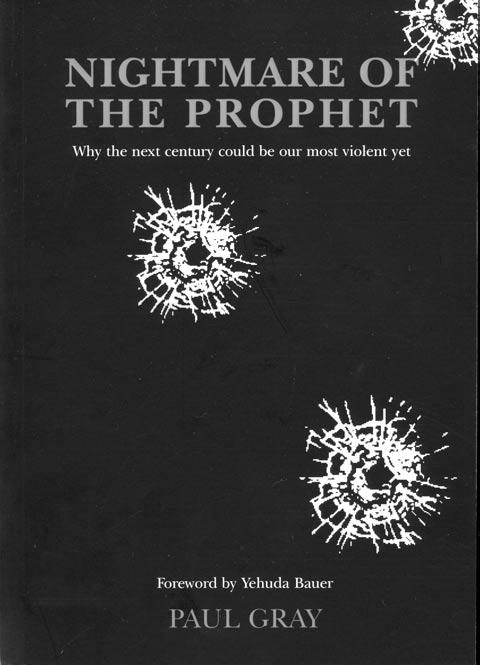
conflict that will result if steps to raise living standards and life expectations in the Moslem world are not taken in time.
In fact, Gray is talking about a massive threat of mass murder, genocide, and civilizational destruction, perhaps parallel to that faced by the late Roman Empire, or worse. The first step to fight a danger is, of course, to realise it is there. Gray does that, convincingly. The second is, as he says, not to ask the question who is responsible, and how the people who are responsible act, or plan to act; we more or less know that. The real question is –why do they do it? Once we know why, we must concentrate on defusing the underlying reasons. The problem of the West, as he shows, is that Western politicians see only the present and the imme-
diate future, because they are elected for relatively short terms, and what comes after the immediate present is unimportant from the perspective of individuals who have to persuade voters to elect or re-elect them. In other words, they rarely see beyond their noses, or if they do, they have to place the immediate concern ahead of what some of them, sometimes, rightly see as the real issues, which they would dearly wish to address, if only they could. Real life and real problems are, for them, only those that worry their constituents. When terrorists attack, the response that is understood by most Westerners is to increase internal security and find the perpetrators. That that approach, if it is the only response that people think about, is self-defeating, is painfully clear. The experts and ‘experts’ on terrorism whose learned writings are presented in the media and in bookstores, are exposed for their short-sightedness.
In case anyone thinks that Gray’s book is a dry analysis of contemporary world political, economic or social problems, one has to stress that the sources and inspirations for his writing often come through works of fiction by well-known or perhaps sometimes less well-known, but brilliant, authors. Fascinating stories that have relevance to the author’s main theme are woven into his analysis in a very unorthodox and persuasive way.
This is an important contribution to a centrally important discussion. It may be directed mainly to an Australian audience, but people everywhere may profit from Paul Gray’s insights.
- from the foreword by Professor Yehuda Bauer, Yad Vashem, Israel
Reviewed: David Dicerto - CNS
AGulf War veteran, haunted by nightmares of an illfated combat mission, digs for answers only to uncover a terrifying truth in the pulsepounding political thriller “The Manchurian Candidate” (Paramount).
In remaking John Frankenheimer’s 1962 Cold War classic based on the paranoia page-turner by Richard Condon, director Jonathan Demme gives the tale a 21st-century facelift, weaving ripped-from-the-headlines fears about government and corporate malfeasance and post-Sept. 11 anxieties into a timely and tautly paced tapestry of spine-tingling suspense.
Updating the action from the Korean War era to the present, the film stars Denzel Washington as Army Maj. Bennett Marco (the role played by Frank Sinatra in the original), a soldier plagued by bad dreams about events that occurred during a firefight in Operation Desert Storm in 1991.
Diagnosed with Gulf War syndrome, Marco spends most of his days shilling the valourous virtues of his decorated former comrade-in-arms, Sgt. Raymond Shaw (Liev Schreiber), whose single-handed heroics had, 12 years earlier, saved most of their platoon when they were ambushed in Iraqi-occupied Kuwait. Or did
he? A seed of suspicion is planted when Marco has a run-in with another old platoon buddy, Cpl. Al Melvin (Jeffrey Wright), whose ravings Marco initially writes off as delusional. However, the macabre drawings contained in Melvin’s sketchbook — visual transcripts of his disturbing dreams — seem to eerily corroborate Marco’s own tortured night visions.
Meanwhile, Shaw has become a rising star on the political stage. Thanks to his war hero status and the backroom bulldozing of his domineering mother, neoconservative Sen. Eleanor Shaw (Meryl Streep), he is named as a vice presidential candidate. Jon Voight plays a right-minded but left-leaning Beltway bellwether, Sen. Thomas Jordan, who had been the front-runner for the VP position.
A campaign trail meeting with Shaw only reinforces Marco’s growing conviction that something terrible happened to their patrol and that somehow their memories of the events were altered to fit a fictitious script which they all now remember as reality.
In his dogged pursuit of the truth, Marco begins to shed light on a conspiratorial coup-in-themaking involving the highest corridors of power and a shadowy corporation called Manchurian Global, which, if not stopped, could threaten the very foundations of American democracy. While staying true to the structure of the 1962 film, Demme’s revamping lacks the original’s subtlety and barbed satire.
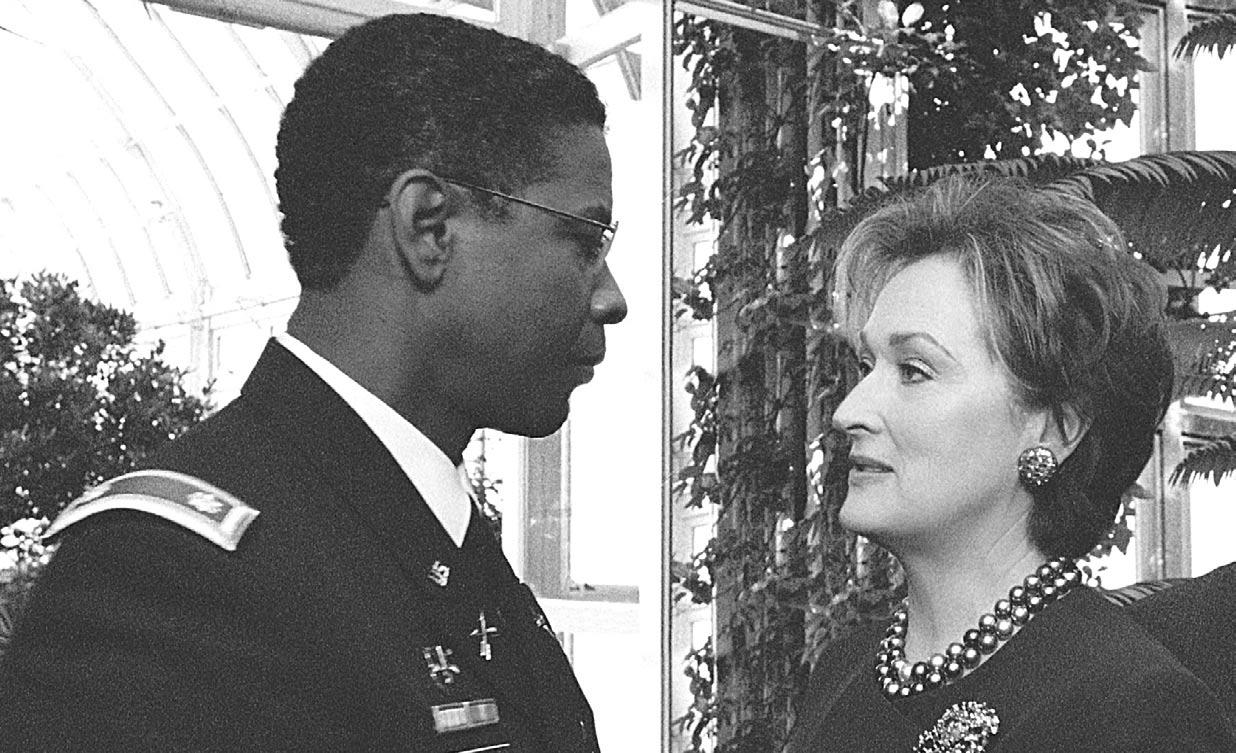
Those who have seen the original film realise the fundamental importance of being careful how one plays Solitaire.
Surrealism and suggestion are replaced with creepy atmospherics and a gritty, hard-edged realism. Violence — confined mostly to the grisly flashback sequences — is much more graphic; it includes point-blank executions and a gruesome strangulation. Demme’s deft storytelling keeps viewers guessing and offbalance, but the script is at times convoluted and many of its labyrinthine plot twists lead to narrative and logical cul-de-sacs. Certain changes were unavoidable in the updating: Korea becomes Kuwait; fear of terrorism replaces fear of communism; the military-industrial complex dons the black hat previously
worn by the Soviets and Chinese; hypnosis gives way to microchip mind control. The ending has also been decidedly altered.
The Oscar-winning Washington is a believable study of obsession, giving a tour-duforce performance as a man whose fractured psyche is losing its grip on sanity. Schrieber is also convincing and elicits much more sympathy than Laurence Harvey in the original. Stepping into the imperious hose of Angela Lansbury, Streep steals the show even as she chews the scenery. Despite its morally murky coda, the film raises intriguing questions concerning the role of free will and the justification of killing.
And while much darker this time around, “The Manchurian Candidate” maintains the original’s underlying faith in humanity.
Chilling and absorbing, “The Manchurian Candidate” as popcorn entertainment is a cut above the rest though it falls short of the original’s bona fide masterpiece status. Still, if you are in the mood for a stylish, psychological thrill ride, this might be just the right candidate. Due to several scenes of graphic violence and torture, as well as some crude language and profanity, the USCCB Office for Film & Broadcasting classification is AIII - adults.
- CNS
The Record 14 5 august2004
NIGHTMARE OF THE PROPHET by
perspectives on popular culture Freedom Publishing Available from The Record (08) 9227 7080 RRP $24.95 T h e M a n c h u r i a n C a n d i d a t e
BUILDING TRADES
BRICK re-pointing.Phone Nigel 9242 2952
ELECTRICIAN, Power/light points from $50 each.
Rewiring our speciality. 0418 941 286, 9279 5008.
PERROTT PAINTING Pty
Ltd for all your residential, commercial painting requirements.Phone Tom
Perrott 9444 1200.
PICASSO Painting.Top service.Phone 9345 0557, fax 9345 0505.
RETAILER of Catholic products specialising in gifts, cards and apparel for baptism, communion and confirmation.Ph:9456
1777.Shop 12A, 64-66 Bannister Road, Canning Vale.Open Mon-Sat
FURNITURE REMOVAL
SHARED ACCOMMODATION
LOW rent shared accommodation in Western suburb, suit mature lady. Walking distance to excellent facilities and public transport.Special circumstances apply.For information phone 08 9385 9168.
BIRTH NOTICE
Agnes Mary Monisse
Born 23rd June 2004.A sister to Joseph, Marian, Carmel and Grace.We give thanks to God for the blessing of his child Agnes Mary to our family.
NEW NORCIA GUEST HOUSE
RETREAT from the everyday pressures of life and experience Benedictine hospitality at the Monastery Guest-house. Situated 132 kms north of Per th in the historic town of New Norcia.Twin rooms with en-suites or single rooms.Join the monks for daily prayer and Mass. Directed retreats by arrangement.Tariff by donation, suggested donation $50 full board. Inquiries:Guesthouse sec. phone (08) 9654 8002, fax (08) 9654 8097.Email: guesthouse_nn@hotmail. com.Please quote ref.R3
IN MEMORIAM
KIRKWOOD (Arthur)
In loving memory of my dear father, who died on August 11, 1991.You are in my heart and prayers at this sad time and always, O my Pappa! May God be with you, and Darling Mother also, and grant you both eternal peace. You know how much I miss you, my loving parents, until we are all again together with God. Fondest love, Moira
THANKS
DEAR St Jude.Once again you have honoured the Lord God of Hosts.Love Joan.
Saturday August 7
WITNESS FOR LIFE PROCESSION
The next First Saturday Mass, procession and Rosary Vigil will commence with Mass at 8.30am at St Anne’s Church, Hehir St Belmont. We proceed prayerfully to the Rivervale Abortion Centre and conclude with Rosary led by Fr Paul Carey SSC.Please join us to pray peacefully for the conversion of hearts.Enq: Helen 9402 0349
Saturday August 7
FUNDRAISING BUFFET DINNER DANCE
Crossroads Community invites you to our biggest annual fundraising event at the Fremantle Italian Club at 7pm.For more details please contact us on 9319 8344.
SundayAugust 8
GATE OF HEAVEN
Please join us this Sunday at 7:30pm on 107.9 FM, Radio Fremantle, for more Global Catholic Radio.This week we will feature:(1) Our Lady in Scripture and Tradition:Patroness Of Evangelization;Fr Andrew Apostoli.(2) The Teaching of Jesus Christ:Fr John Corapi;The 2nd & 3rd Commandment.Donations toward the program may be sent to Gate of Heaven, PO Box 845, Claremont, WA 6910.Programs subject to change without notice.
Sunday August 8
CONNECTIONS UNPLUGGED
5 Nights of Connecting with young Catholics. Opportunities for fellowship and input on the Catholic Faith.Every Sunday in August, 6-9pm, 187 Hancock St Doubleview.Cost $5 (meal included) Phone Marty Thorsen 0417 637 040 for more details.
Sunday August 8
FATIMA HOLY HOUR
The World Apostolate of Fatima will hold a Holy Hour at Regina Coeli Church, cnr Bateman and Adamson Rds, Brentwood at 3pm.Come and make Eucharistic reparation to Our Lord, Jesus Christ.All welcome.
Sunday August 8
PILGRIMAGE TO YORK IN HONOUR OF ST PHILOMENA
Bus to York, Holy Mass in the Historic Parish Church of St Patrick at 12noon with Benediction, Litanies, Rosaries and other devotions in honour of St Philomena.Time to visit the town site. Bus leaving Mercedes College staff car park off Goderich St, Perth opposite Jewell House.Cars can be parked in staff car park for the day.Car park gate will be locked at 10.15am, opened about 6.30pm.BYO lunch.All welcome.Enq:Fr Michael Rowe 9444 9604.
Sunday August 8
TAIZE MEDITATIVE PRAYER
Come and join us.A beautiful way of praying in a candle lit atmosphere and silence at St
Even a little ad like this can be effective!
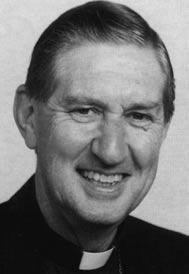
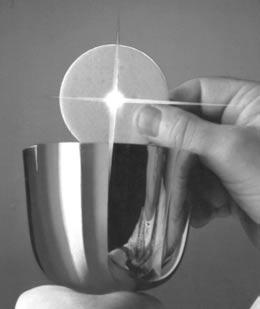
Joseph’s Convent Chapel, 16 York St, South Per th 7-8pm.Enq:Sister Maree 9457 3371
Monday August 9
CATHOLIC MENTAL HEALTH SUPPORT GROUP
Carers meeting is held on the second Monday of each month commencing at 7.30 pm at Our Lady of Lourdes Parish, Marda Way, Nollamara. These meetings provide the opportunity to share information and offer mutual support.For more details contact Pat Mahoney 9275 2809.
Tuesday August 10
CHILDREN OF THE CROSS COMMUNITY
Children of the Cross Inc.is a lay Catholic Association providing a means to live the Gospels in their fullness.Please join us for morning prayer, every Tuesday, Thursday and Friday at 7am and for our community prayer every Sunday from 2 – 3pm commencing on August 15.Prayer is held in Santa Clara Church in Bentley.
Tuesday August 10
CATHOLIC FAITH EXPLORATION (CaFE) FOR YOUTH - MODULE 2
Are you ready to find more answers? Youth CaFE Module 2 invites the youth of Perth to explore their faith.7.30pm at the Catholic Pastoral Centre Seminar Room, 40A Mary St, Highgate.Eight weekly sessions Ages:16 to 35. Cost:Free.Enq:Christine 0411 273 572 or Daryl 0402 223 563, or info@youthcafe.org Website:www.youthcafe.org
Thursday August 12
ST PADRE PIO PRAYER GROUP Meets every 2nd Thursday of the month, 6.30 to 7.30 pm at St Bernadette’s Church, 51 Jugan St, Glendalough.Includes:Exposition of The Blessed Sacrament and Benediction.All very welcome.
Thursday August 12
HILLS AND EASTERN SUBURBS MENTAL HEALTH SUPPORT GROUP
A Committee has been formed to meet the needs of people with mental health issues and carers in the Hills and Eastern Suburbs.Focus: information sharing, networking, support and spiritual survival.Next meeting:Kelmscott at 12 noon starting with lunch.Good Shepherd Parish Centre, 42 Streich Ave, Kelmscott.Enq:Clive 9495 1919, Charles 9497 7170 (after 6pm) or Barbara Harris of Emmanuel Centre 9328 8113.
Thursday August 12
HEALING MASS
A Healing Mass in honour of St Peregrine, patron of cancer sufferers and helper of all in need, will be held at the Church of SS John and Paul, Pinetree Gully Rd (off South St) Willetton
at 7pm.Veneration of the Relic and Anointing of the sick.Enq:Noreen Monaghan 9498 7727.
Sunday August 15 VESPERS
Solemn Vespers for the Feast of Our Lady’s Assumption will be sung in St Mary’s Cathedral at 4.30pm.The cathedral choir will lead the celebration.All are welcome.
Sunday August 15
BULLSBROOK PILGRIMAGE FOR THEASSUMPTION OF THE VIRGIN MARY
The Assumption of the Virgin Mary into Heaven will be celebrated at the Shrine of Virgin of the Revelation, 36 Chittering Rd, Bullsbrook.The pilgrimage commences at 2pm with Procession and Rosary, the Pilgrimage Mass at 2.30pm, Benediction and the blessing of the sick. Reconciliation at 1.30pm.Pilgrimage Mass and Devotions at 2pm.Bus departs Barrack St at 12.30pm for Bullsbrook via Highgate, Guildford, Midland.Bookings:tel 0409 296 810 or 9277 5378 Enq:contact SACRI 9447 3292.
Wednesday August 18
C.W.L ARCHDIOCESAN AGM
Members and friends are cordially invited to attend the annual Archdiocesan Catholic Women’s League A.G.M.at the Retreat House, Redemptorist Monastery, North Perth commencing with Registration at 9am.Cost $6.00. Lunch available.Enq:Margaret 9328 8978.
Saturday August 21
FANCY DRESS SUPPER DANCE
The Good, the Bad and the Ugly.BYOnibbles and drinks, cool drink sales available.Book your table of 10 for a night of fun and live music. 7.30pm 67 Howe Street, Osborne Park .Tickets available from Megan Belcher 0412 869 073 or Marty Thorsen 0417 637 040.
Sunday August 22
HEALING MASS
Alan Ames Healing Mass, at St Catherine’s Catholic Church, GinGin.Lunch 12noon, BYO. Mass 1.30pm.Enq:Loretta 9444 4409 or Fr Paul 9571 1839.For bus enquiries 0404 893 877.
Friday August 27 – Sunday August 29
SPRINGTIME GROWTH IN THE SPIRIT RETREAT
The Holy Spirit of Freedom Community is running an open Community Retreat.It will be held at Karriholm – God’s Sanctuary in Pemberton. Enquiries:Marcelle Batticci on 9776 1542.
Sunday August 29
50TH ANNIVERSARY NAREMBEEN CHURCH A Mass will be celebrated by Archbishop Hickey at 11am to mark the 50th anniversary.A luncheon will follow.Names and details of past parishioners are sought.Photos and memorabilia also needed.Contact Rhonda Hickey Box 43, Narembeen, 6369 or phone 9065 3026.
13-15Parish
and Confirmation,KarrinyupBishop Sproxton
14Mass for Thomas More Winter School, Leederville - Archbishop Hickey Vigil Eucharist to celebrate 10th Anniversary of inauguration of Redemptoris Mater Seminary, St Mary's Cathedral - Archbishop Hickey
The Record 5 august 2004 15 eye Catcher CLASSIFIEDS Classified ads: $3 per line (plus GST) 24-hour Hotline: 9227 7778 Deadline: 5pm Monday official diary AUGUST 5 & 6Confirmation,GreenwoodMgr Thomas McDonald 6Mass and Presentation of Youth Books, Sacred Heart College - Archbishop Hickey 7Cross Roads Fundraising Dinner,Fremantle Italian Club - Archbishop Hickey Investiture for Order of St Lazarus of Jerusalem, St George's Cathedral - Bishop Sproxton Confirmation,Highgate - Fr Greg Carroll 8 Mass to celebrate 50th Anniversary of Bentley Parish - Archbishop Hickey Mass for Order of St Lazarus of Jerusalem, St Mary's Cathedral - Bishop Sproxton Mass to celebrate recent Profession of Sr Julia Della Franca RSJ,South Perth - Bishop Sproxton 9 Official Launch of Cassamarca Gift to Australia, UWA - Archbishop Hickey 10Heads of Churches Meeting,Wollaston CollegeBishop Sproxton 11Keynote Address Australian Catholic Press Association Conference,PerthArchbishop Hickey Geoffrey Bolton Lecture 2004,Government House Ballroom - Archbishop Hickey 12Council of Priests' Meeting,GlendaloughArchbishop Hickey,Bishop Sproxton Closing Mass for Australian Catholic Press Association Conference,St Mary's CathedralArchbishop Hickey 13Mass to celebrate International Youth Day, 7.30 pm,St Mary's Cathedral - Archbishop Hickey Mass for Marian Movement Retreat,Sacred Heart College - Fr Peter Meo
Visitation
panorama a roundup of events in the archdiocese ALL areas.Mike Murphy 0416 226 434. Advertise in The Record This ad will cost you as little as $92.40 per insertion. We also offer you discounts for multiple insertions. Call now to make your booking. Ring Carole: 9227 7080 ROSARY BEADS
crafted crystal rosary beads and chaplets all occasions Ph:Joanne 0414 624 580 CATHOLICS CORNER
CUSTOM
Henry’s servant, but God’s first
So says Gerard Wegemer, a dedicated student of More who has written two books on the 16th-century statesman: Thomas More: A Portrait of Courage (Scepter) and Thomas More on Statesmanship (CUA Press). The former focuses on how More understood and lived the virtues in family and political life; the latter looks at More's understanding of human nature and the elements needed for statesmanship.
Wegemer, a professor of literature at the University of Dallas and the founding director of the Centre for Thomas More Studies, is editing a paperback series of More's major works. He shared with ZENIT how modern statesmen must follow in the footsteps of More.
Q: How is St Thomas More a portrait of courage, particularly for politicians?
Wegemer: St Thomas More, made patron of statesmen and politicians by Pope John Paul II in 2000, held the highest office of England under King Henry VIII, but gave up that office and eventually his life to defend fundamental principles of justice.
Although More ingeniously sought to avoid imprisonment and death - after all, he had a growing family to care for and a deep love of life - his love of truth and conscience eventually led to martyrdom.
More is a "portrait" of courage, instead of a mere sketch, because he lived courage in every aspect of his life: in the diligent attention to his family members and their education, in the diligent study of the issues in his professional and political work, in the diligent care for his neighbours and friends, especially God, the first of his friends.
Courage for More was constant and he gave cheerful attention to duty in whatever forms that duty took.
Cheerfulness and good humour are the qualities for which More is most famous, even in his own lifetime. To maintain cheer in all circumstances, even on the scaffold, takes a remarkable courage from which any politician can profit.
Politicians are always under pressure and always face opposing and contentious views, so contentious that hatred and war can result. More mastered himself, rhetoric and the issues of his day to such a degree that he became the spokesman of his country and of his Church - his conscious objective was to allow the light of reason to reign, rather than the heat of emotion.
Towards this end, he knew that humour played an essential role.
More was also a genius, yet nevertheless he trained himself for 15 years after law school before accepting a position in King Henry's court. By that time, More was 41; his marriage with his second wife was settled - his first wife had died after the birth of their fourth child; his children were older; and he was prepared
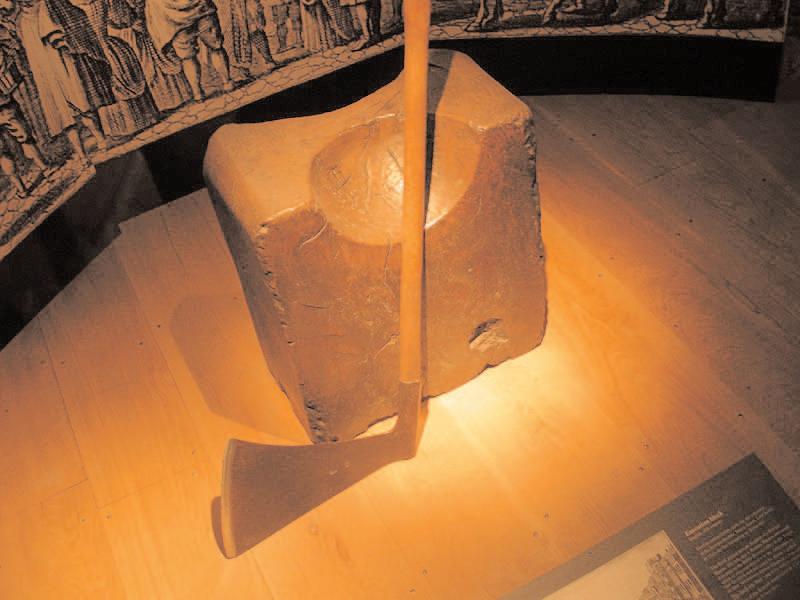
for the emotional, moral and political challenges that arose immediately.
It might be said that More is most useful to politicians today because he shows how one must educate oneself to be a genuine statesman.
“ S t T h o m a s M o r e ' s e x c e p t i o n a l s t a t e s m a n s h i p a n d h u m a n e l e g a n c e w e r e r o o t e d i n g e n e r a t i o n s o f a d e v o u t C a t h o l i c f a m i l y ”
For example, how do politicians train themselves not to be unduly influenced by the opinions of others?
According to More, the primary objective of education is the "inner knowledge of what is right" - "recti conscientia," a right conscience - knowledge that does not depend "on the talk of other people." Otherwise, as More put it: "A mind must be uneasy which ever wavers between joy and sadness because of others' opinions."
Here again we return to the centrality of More's cheerfulness and good humour as a mark of his balanced statesmanship.
Q: How did More integrate his interior, spiritual life with his exterior life in politics?
Wegemer: As More is the first person to use the word "integrity" in the English language, your question goes to the heart of his attractive personality and of the reason that he was so trusted and beloved by his fellow citizens.
In the 16th-century play "Sir Thomas More," written in part by Shakespeare, Sir Thomas is described as "the best friend the poor ever had" and he is shown to be so well admired that he stops a riot by his presence and
his persuasion. As politicians know, their reputation is their most important human asset, and this is shown in More's life as well.
More started every day in prayer and study, even - or rather, especially - during his busiest days as Lord Chancellor. He was convinced that God works through conscience and is present in conscience, but that the voice of conscience whispers only after sufficient study and attention.
As Pope John Paul II put it in his proclamation of 2000, St Thomas More "demonstrated in a singular way the value of a moral conscience which is 'the witness of God himself, whose voice and judgment penetrate the depths of man's soul.'"
More relied regularly on the sacraments. He attended Mass each day; he had a lifelong devotion to the Eucharist; and he frequented the sacrament of penance, especially before making any major decision. He also led the family prayers when he
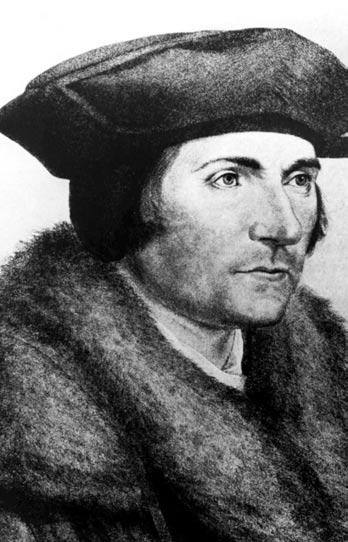
Catholic politicians in his state of Wisconsin to vote more in line with the faith they profess. What responsibilities do Catholic lawmakers have to vote in accordance with Church teachings?
Wegemer: Revelation gives light and clarity to principles that are needed to solve the complex issues of any age. This gift gives the Catholic politician an even greater responsibility to be a genuine statesman, that is, to find real solutions that take into account all factors and views but without sacrificing essential principles. As the example of More shows, the light of Revelation is a help for real progress, not a hindrance.
Q: The US bishops recently called for more Catholics to get involved in politics. Why should Christians participate in civic life? How can the example of Thomas More guide Catholics who want to enter the modern political scene?
was at home, which included the rosary.
Q: What are the differences between, say, John F Kennedy's position on his faith and public duties, as compared to Thomas More's?
Wegemer: More studied so deeply that he saw how politics could be lived so that there need be no conflict between temporal and spiritual duties. That is why his last words were "I die the King's good servant and God's first." That "and" is highly significant.
When Henry VIII insisted on manipulating the laws of England to achieve his own will, More took every possible opportunity to remind the King of the demands of justice. History has proved that More was right and that Henry was a tyrant.
Politicians today need the same broad historical and philosophical and theological perspective that More achieved through years of study.
Q: Recently, US Bishop Raymond Burke appealed to
Wegemer: As I mentioned earlier, More formed and attended carefully to his conscience, and conscience reveals to each one the natural duties of real life. One of those duties is citizenship, the exciting and challenging endeavour of working with one's neighbours for the common good.
More was a great citizen, a great friend, a great father and a great husband who was born in the heart of London, in a family that had been active for generations in every aspect of civic life. The character of St Thomas More, in other words, did not simply happen, any more than the character of Pope John Paul II simply happened by chance.
The Pope's strong and cultured personality, as well as his deep and learned piety, was rooted in generations of Catholics refined by extraordinary sufferings. And St Thomas More's exceptional statesmanship and human elegance were rooted in generations of a devout Catholic family immersed in London's long tradition of self-government.
- Z e n i t
Courage to the end
St Thomas More was born in London on February 7, 1478. An Oxford scholar, he was known for his wit and humour. He was an early proponent of free speech and women’s education. Also a practical man, he studied law and acquired a reputation as a brilliant and principled public servant, eventually rising to the highest appointed civil position in England, Lord Chancellor. More resigned his post rather than sign the Act of Succession, which would have been an endorsement of Henry’s divorce, his break from Rome and his self-proclaimed title of “Supreme Head of the Church in England.”More never publicly opposed the King, but even his silence earned the King’s wrath. On July 6, 1535, after more than a year in the Tower of London, More was beheaded. He was beatified in 1886 and canonised in 1935.
The Record 16 5 august 2004 T he Last Word
W i t h a n e l e c t i o n l o o m i n g , p o l i t i c i a n s t o d a y c o u l d l e a r n a l o t f r o m t h e i r p a t r o n s a i n t , S t T h o m a s M o r e , b y l o o k i n g t o h i s m a s t e r y o f s e l f , r h e t o r i c a n d m o r a l i s s u e s .



















































 By Lisa Schulte
By Lisa Schulte









